Elisabeth Haub School of Law at Pace University
ALUMNI MAGAZINE • SUMMER 2025
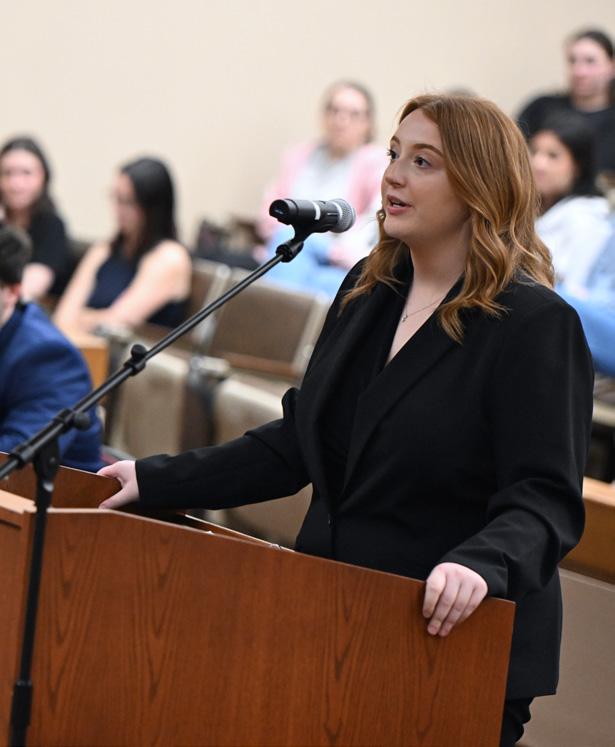

ALUMNI MAGAZINE • SUMMER 2025

DEAN
Horace E. Anderson, Jr.
ASSISTANT
Rachael M. Silva
EXECUTIVE DIRECTOR OF COMMUNICATIONS
Jessica Dubuss ’09
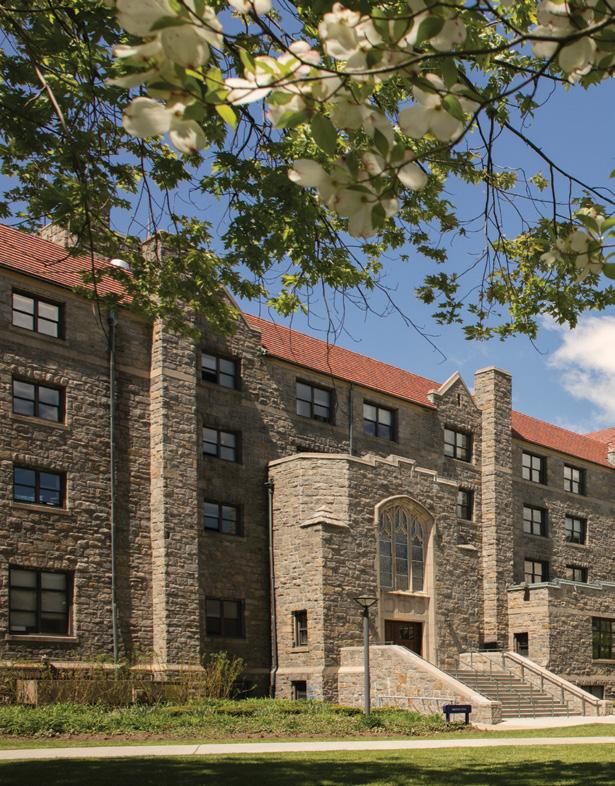
MANAGING
CONTRIBUTING WRITERS
Rex Bossert
Renee Brown-Cheng
Leslie Y. Garfield Tenzer
DESIGN
Sarah
PHOTOGRAPHY
Dmitriy
Guy
Photography
Jeffrey Fleisig
Jörg


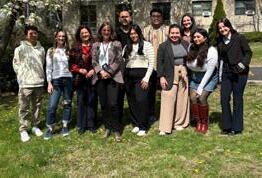



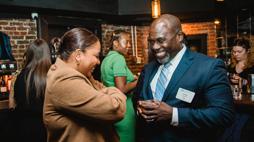
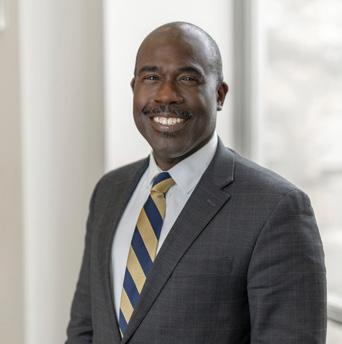
“ YOUR STORIES, MILESTONES, AND PROFESSIONAL JOURNEYS ARE AT THE HEART OF OUR COMMUNITY. YOUR ACHIEVEMENTS REFLECT THE BEST OF THE LAW SCHOOL.”
HORACE E. ANDERSON, JR.
Summer 2025
Dear Alumni,
We concluded the 2024–2025 academic year with a vibrant Commencement ceremony at the USTA Billie Jean King National Tennis Center in Queens. Our graduates heard a powerful keynote from FDNY Commissioner and Elisabeth Haub School of Law at Pace University alumnus Robert S. Tucker ’96, who also received an honorary Doctor of Laws degree in recognition of his distinguished career in public service.
As this issue of the magazine demonstrates, the Elisabeth Haub School of Law at Pace University continues to grow in impact and reputation. In 2025, we were once again recognized as the #1 Environmental Law Program in the nation by U.S. News & World Report. This is our sixth time receiving this honor and fifth consecutive year. This year’s cover story highlights our Advocacy Program, which was also recognized in the national rankings as #19, reflecting the outstanding performance of our students, the leadership of our faculty, and the mentorship of our alumni coaches.
We are equally proud of our centers and clinics. This year, the Immigration Justice Clinic marked a transition in leadership while honoring the legacy of its founder, the late Professor Vanessa Merton. Under new director Professor Amelia Wilson, the Clinic continues to serve as a lifeline for immigrant clients and a transformative training ground for students. The newly established Vanessa Merton Immigration Justice Fellowship now extends this impact even further.
Our faculty continue to inspire, mentor, and lead – both in and outside the classroom. Many of their articles, books, and accomplishments are featured in this issue, demonstrating how Pace Haub Law faculty are contributing to scholarship that informs real-world solutions. We also are welcoming several new faculty members, who bring fresh perspectives to our community, complementing the strengths of our long-standing faculty. Our faculty’s combined contributions underscore our commitment to a dynamic, forward-looking legal education.
We are also especially proud to highlight some of our students and recent graduates. Across all these stories, one theme stands out: our students are at the center of everything we do. Their success is our success and their stories are shaping the future of the legal profession.
Finally, I want to thank you—our alumni—for your continued engagement and generous support. Your stories, milestones, and professional journeys are at the heart of our community. Whether you’re litigating, legislating, advocating, or innovating, your achievements reflect the best of the Law School. We are proud of your accomplishments, and it is your example and your leadership that will help guide the next generation of Pace Haub Law graduates.
Thank you for your ongoing support and involvement.
Sincerely,

HORACE E. ANDERSON, JR. Dean, Elisabeth Haub School of Law at Pace University
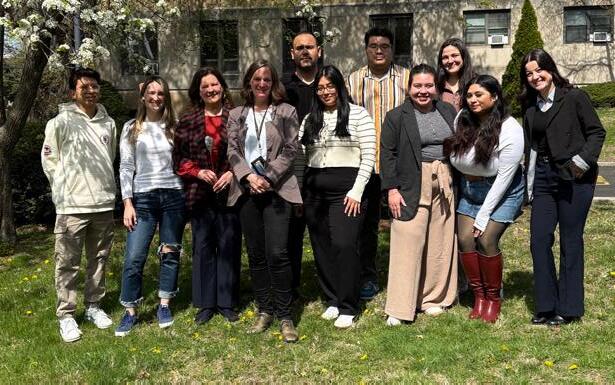
Since its founding in 2005 by the late Professor Vanessa H. Merton, the Immigration Justice Clinic (IJC) at the Elisabeth Haub School of Law at Pace University has empowered generations of law students, under the guidance of faculty, to advocate and help thousands of immigrants and created a pipeline of graduates receiving prestigious post-graduate fellowship placements and launching careers in immigration law, private firms, independent law offices, and nonprofit agencies. Over the past two decades, the IJC has evolved into one of the Law School’s flagship clinical programs, combining rigorous academic training with a deep commitment to social justice.
Foundations of the Clinic: Professor Vanessa Merton’s Vision
Professor Merton joined the Law School’s faculty in 1989. A visionary legal expert and tireless advocate, she established the IJC to fill a critical gap she saw in legal services for indigent individuals living, working, or detained in the Hudson Valley and the five boroughs. Under her leadership, the Clinic provided free legal advice and representation to thousands of immigrants facing removal, seeking to regularize their legal status through deportation defense, family ties, employment, asylum, and pursuing other available legal avenues.
“Vanessa was not only the visionary leader of our Immigration Justice Clinic, but she was also a legendary legal expert, an advocate for her clients, and a mentor to countless lawyers in our region who stand in the breach for the underrepresented and underserved,” said Pace Haub Law Dean Horace E. Anderson, Jr. “Her altruistic spirit and tireless dedication to serving others has left an indelible mark not only on the Law School, but broadly in the community.”
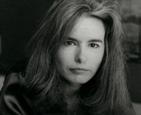
Professor Merton’s commitment to her cause was truly admirable, demonstrated through her incredible work ethic, her investment in her students, and her personal involvement in the community. She assisted travelers detained at airports, spent spring breaks volunteering at immigrant detention centers on the southern border, and established a 200-student emergency operation to assist people affected by 9/11. She was also a passionate advocate for protecting the rights of all American voters. “Vanessa did so much for so many, but perhaps her greatest legacy was that as a teacher and mentor to generations of students, many of whom she inspired to pursue careers in immigration justice or as public interest lawyers,” shared Dean Anderson.
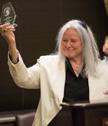
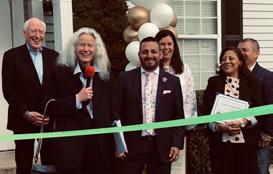
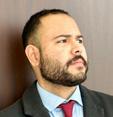
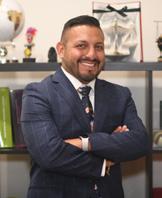
The IJC quickly distinguished itself by offering student attorneys realworld litigation experience through appearances in Immigration Courts, correctional facilities, and appellate courts. Students diagnosed clients’ legal needs, developed case strategies, and represented clients at hearings and trials. The Clinic’s holistic approach addressed the broader needs of clients, including assistance with Medicaid, unemployment benefits, and workers’ rights.
For many Pace Haub Law students, participation in the IJC has been a transformative experience. “I applied to the Immigration Justice Clinic (IJC) because I wanted to get real world experience working with clients before graduating,” said 2025 graduate, Gigi Quatrone. “My IJC experience was illuminating––from writing briefs and drafting motions to the court, to weekly client interviews, I learned a lot about what being a real lawyer looks like. The skills I gained, particularly in client relations and counseling, are transferable to any sector.” Gigi will be starting as a Junior Associate at Freshfields after she takes the bar exam.
Recent graduate, Joseph Martinez ’25, who served as the President of the Pace Immigration Law Society, described the IJC as an amazing experience. “The Clinic allowed me the opportunity to collaborate with fellow students and observe how they approach complex
“ SHE ENCOURAGED HER STUDENTS TO BE THE BEST VERSIONS OF THEMSELVES. AND, SHE TAUGHT ME NEVER TO GIVE UP, EVEN IN THE FACE OF OVERWHELMING ODDS.”
W. PAUL ALVAREZ ’16
immigration issues. The semester-long structure allowed me to learn how to effectively manage a client’s case, while balancing coursework alongside it.” Joe has accepted an offer to be an Immigrant Justice Corps fellow with a placement at the Central American Refugee Center post-graduation. The Immigrant Justice Corps fellowship is one of the most prestigious and competitive in the field. “This year only about 40 fellows were selected nationwide,” said Joe. “I am incredibly honored to be a part of the cohort for 2025 and to continue doing what I can for the immigrant community. Pace Haub Law and the IJC prepared me well.”
W. Paul Alvarez ’16, an IJC alumnus, credits Professor Merton for instilling in him lessons in professionalism, compassion, leadership, and resilience. “She encouraged her students to be the best versions of themselves. And, she taught me never to give up, even in the face of overwhelming odds,” he said. “Professor Merton and the IJC shaped me into the attorney I am today.”
In 2022, Paul opened his own law office in Pleasantville, NY – the Law Office of W. Paul Alvarez PLLC – where he works in the immigration field. His passion for immigration law is rooted in his own immigration story. Paul was born in Ecuador and later became a naturalized citizen of the United States. “I knew that ultimately, I wanted to be able to represent and help people live the American dream. I researched different law schools and when I read about the Law School’s Immigration Justice Clinic, I was amazed. Through the IJC, I gained the hands-on experience and confidence I needed to pursue a successful career in immigration law. I feel honored to call Professor Merton my mentor – she came into

my life and changed the trajectory of who I am. As a result, through the work I do today, I can change lives for the better.”
Continuing the Legacy: New Leadership and Growth
Following Professor Merton’s passing, the Law School appointed Professor Amelia Wilson as the new Director of the IJC in 2024. Professor Wilson, a seasoned immigration law expert with nearly two decades of experience, previously served as an Assistant Clinical Professor in the Immigrants’ Rights/International Human Rights Clinic at Seton Hall Law and as Supervising Attorney, Research Scholar and Lecturer-in-Law at Columbia Law School where she co-taught the Immigrants’ Rights Clinic.
“I have worked in immigration law for almost 20 years— the last six of which had been spent in clinical teaching at other institutions,” said Professor Wilson. “Professor Merton was a giant in the field of immigration—and experiential teaching in general. The literal decades of students and careers she shaped, the legions of clients whose lives she improved, her direct influence over the development of the law…she endures in so many people and spaces to this day. I want to honor—and add to—her legacy, and I take this responsibility very seriously.”

Professor Wilson was drawn to immigration law because she finds it intellectually fascinating, emotionally rewarding, and a professionally rich area of practice. “It sits at the intersection of constitutional law, family law, criminal law, civil law, and international law. And it is constantly changing, so never dull. But on a more personal level, I love helping others—especially where the stakes are so high. Knowing that you have given dignity and due process to so many from around the world, who are only seeking safety and security for themselves and their families, is deeply satisfying.”
Under Professor Wilson’s leadership, the IJC continues to thrive. To prepare for their clinical experience, students begin with a summer assignment, a four day “boot camp,” an intensive all-day training on immigration law and practice, and significant classroom training, simulations, and more. Additionally, the spring seminar is largely devoted to thoughtful exploration of career decisions and various models of law practice, with special emphasis on the problems and possibilities of small/solo independent law offices. Recent cases, such as the representation of a Colombian woman fleeing horrific domestic violence, underscore the emotional and legal complexity of the work the IJC undertakes.
“Through the IJC, students receive a crash-course in lawyering,” said Professor Wilson. “From day one they are assigned a client (or family of clients), and some already have a deportation trial scheduled where they will serve as lead counsel before an immigration judge and a skilled
government prosecutor. Over the course of months, students engage in direct client work, witness affidavit writing, motion practice, evidencegathering, trial preparation, and brief writing. They learn skills in trialcentered lawyering, persuasion and advocacy, self-care, representing traumatized clients, and navigating difficult ethical questions. By the end of the semester, the students are almost fully-fledged lawyers. It’s amazing to watch their transformation over the course of a few short months.”
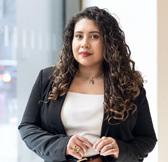
A licensed attorney in Brazil, Mayara Carvallo ’25, decided to pursue her LLM at Pace Haub Law to become licensed in New York and focus on immigration and international law. “I have a deep commitment to helping people navigate cross-border legal challenges while also building a life and career that honors my family and background,” said Mayara. She describes her experience with the IJC as a turning point. “The Clinic gave me the chance to move beyond theory and into real-life advocacy by representing clients and making meaningful contributions under Professor Amelia Wilson’s supervision. It made me feel empowered, like I’m already making a difference while still a student. It also challenged me to grow, both intellectually and emotionally—I saw the human side of the law profoundly.”
Continued on next page.
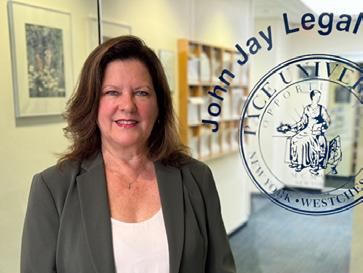
Even before she started at the Law School, Mayara was aware of the IJC’s strong reputation as a champion in the fight for immigrants’ rights.
“I knew about its legacy, and especially about the incredible work of the late Professor Vanessa Merton. She was truly a hero in this field, and I knew I wanted to be part of this project that carried such deep purpose and impact. When she passed, I did not doubt that whoever was chosen to continue her work would be someone fearless, committed, and inspiring. Professor Amelia Wilson has been proving exactly that. Her leadership is bold, her mentorship is generous, and she carries forward the spirit of advocacy that defines the Clinic.”
Introducing the Vanessa Merton Immigration Justice Fellowship
To honor Professor Merton’s enduring impact, the Vanessa Merton Immigration Justice Fellowship was established in 2024. Funded through the generosity of Professor Merton’s family and other donors, Barbara Sarmiento, a 2024 graduate of the Law School, was selected to serve as the inaugural Vanessa Merton Immigration Justice Fellow. A former Clinic Administrator and Flex JD student, Barbara worked closely with Professor Merton throughout her law school career. “Professor Merton was a beacon of hope and perseverance,” Barbara reflected. “I am honored to carry forward her mission.” As the Immigration Justice Fellow, Barbara now serves as a liaison between the Clinic, immigration organizations, and the migrant community, helping to connect those in need with free legal services, resources or referrals.
“We are deeply grateful for the inauguration of this new fellowship that will enable the Immigration Justice Clinic

to expand its reach, particularly to those community members and families who are barred from most immigration relief,” said Stephanie Tombrello, Vanessa’s sister. “Vanessa was known for her tenacity and dedication to accompanying and advocating for her clients, always exhausting every option. Now, the next generation of new students will carry on this commitment and thrive with the support and guidance of the inaugural fellow, Barbara Sarmiento, a recent Pace Haub Law graduate who herself has witnessed Vanessa’s passion and compassion.”
A former paralegal, Barbara Sarmiento first joined he Law School in 2018 as the Immigration Justice Clinic Administrator and an Assistant Clinic Administrator for John Jay Legal Services, the not-for-profit legal services firm that houses and runs the clinic and externship programs at the Law School. Working closely under the auspices of Professor Merton, she was responsible for leading orientation and training for legal interns, supporting interns with their case management, and often worked directly with clients as a Spanish translator. “Professor Merton had a profound effect on my life,” said Barbara. “I have always been impressed by her extraordinary intellect, knowledge of the law and passion as an advocate for immigrant rights. She was an inspiration to so many students, like myself, demonstrating the hard work needed to represent clients well and further their interests.”
Recent graduate Mayara describes Professor Wilson and IJC Fellow Barbara Sarmiento as inspirations. “Their doors were always open, we
“ PROFESSOR MERTON WAS A BEACON OF HOPE AND PERSEVERANCE. I AM HONORED TO CARRY FORWARD HER MISSION.”
BARBARA SARMIENTO ’24
INAUGURAL VANESSA MERTON IMMIGRATION JUSTICE FELLOW
could always rely on them, and they always had words of encouragement to share. Beyond the technical skills that they both taught me, from them I also learned resilience, empathy, and the importance of persistence.”
“We are honored to have the opportunity to continue Vanessa’s extraordinary and vital work in immigration justice, through the creation of this fellowship which will enable us to expand our legal services to underserved immigrant communities, and support the hard work of our students and supervising faculty,” said Dean Anderson. “Barbara is a most deserving fellow; as both a law student and a member of the clinic staff, she has demonstrated the type of dedication and personal commitment that has typified Vanessa’s tenure at the Law School.”
Today, the Immigration Justice Clinic carries on the legacy of its founder, Professor Vanessa Merton, and stands as a testament to the power of legal education to effect social change.
“The IJC doesn’t just teach you lawyering,” said Mayara. “It teaches you how to fight for people’s lives and futures.”
Dean Anderson echoed this sentiment: “The Immigration Justice Clinic is one of the Law School’s proudest accomplishments, Professor Vanessa Merton built a solid foundation, and under Professor Wilson’s leadership, it will continue to empower the next generation of advocates. Pace Haub Law is committed to graduating lawyers who champion the rights of all—the Immigration Justice Clinic is a true testament to that.” n
Professor Vanessa Merton began her legal education career at New York University School of Law, and was a founding faculty member of CUNY Law School, and a Mellon and National Endowment for the Humanities Fellow. She joined the Elisabeth Haub School of Law at Pace University faculty in 1989 and served as Associate Dean for Clinical Education and Executive Director of John Jay Legal Services, while creating and teaching clinics in Access to Health Care and Prosecution of Domestic Violence, and innovative programs aimed at providing legal services to those in need.
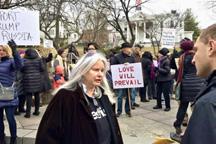
In 2005, Professor Merton founded the Pace Immigration Justice Clinic and served as its Executive Director until early 2024. In this role she was a steadfast advocate for her clients and a role model for Pace Haub Law students — providing representation on applications for asylum or family-based status, in removal proceedings at state and federal detention facilities, and on petitions for crime victims and juvenile immigrants. She assisted travelers detained at airports under the 2017 Trump Executive Orders, spent spring breaks volunteering at immigrant detention centers on the southern border, and established a 200-student emergency operation to assist people affected by 9/11. She was also a passionate advocate for protecting the rights of all American voters. Professor Merton passed away on July 15, 2024, and is fondly remembered as a teacher and mentor to generations of Pace Haub Law students, many of whom she inspired to pursue careers in immigration justice or as public interest lawyers.
Learn more about the remarkable life and career of Professor Merton in her digital Festschrift put together by her family and also the special Festschrift issue of Pace Law Review dedicated to her as a loving tribute.
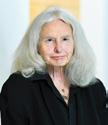
Those interested in sending a gift are encouraged to make a contribution in her name to support the Vanessa Merton Immigration Justice Fellowship established by her family to continue her legendary work in the Pace Immigration Justice Clinic. n
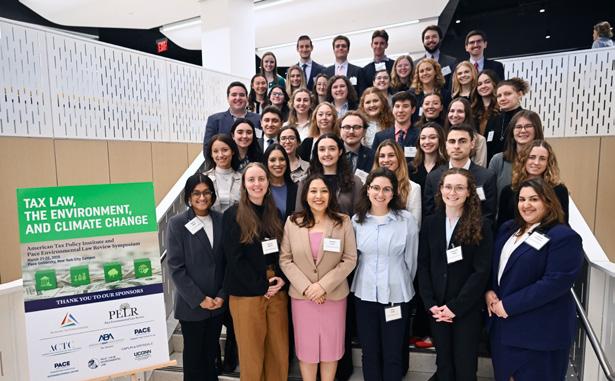
The Elisabeth Haub School of Law at Pace University proudly hosted the American Tax Policy Institute (ATPI) and Pace Environmental Law Review (PELR) Symposium on Tax Lax, the Environment, and Climate Change. The two-day symposium, held on Pace University’s downtown campus, explored the intersections of tax law, climate change, and environmental policy. The symposium brought together leading experts, policymakers, scholars, and practitioners to discuss the critical role of tax policy in addressing pressing environmental challenges and advancing sustainability.
The symposium opened with remarks by Bridget J. Crawford, University Distinguished Professor, Elisabeth Haub School of Law at Pace University, and current President of the American Tax Policy Institute. In her remarks, Professor Crawford emphasized that each person –including lawyers, economists, policy experts, students, and members of the general public – can play a role in halting the ongoing irreversible damage to our planet. Emphasizing that environmental justice requires collective effort, she urged attendees to recognize the influence of tax law in shaping behavior and promoting equity. “Saving the planet is not a political issue; it is a practical one,” she noted.
Mackenzie Wittig ’25, Symposium Editor for PELR, welcomed attendees. The first day of the academic conference consisted of numerous panels that covered various aspects of discussing the intersection of tax law and the environment. A highlight of the event was a keynote by Kimberly Clausing, PhD, the Eric M. Zolt Chair in Tax Law and Policy, UCLA School of Law, who addressed International Climate Cooperation After 2024. She emphasized the
need for global collaboration, equity in policymaking, and incentives to foster multinational engagement in climate initiatives. The first day concluded with a networking reception, featuring student presentations and informal dialogue among participants.
Day two included a panel on Sustainable Finance, ESG, and Climate Resilience, followed by closing remarks from Roberta F. Mann, Professor Emerita, University of Oregon School of Law and American Tax Policy Institute Trustee and Mackenzie Wittig ’25. Attendees also had the
“ SAVING THE PLANET IS NOT A POLITICAL ISSUE; IT IS A PRACTICAL ONE”
BRIDGET J. CRAWFORD
UNIVERSITY DISTINGUISHED PROFESSOR, ELISABETH HAUB SCHOOL OF LAW AT PACE UNIVERSITY, CURRENT PRESIDENT OF THE AMERICAN TAX POLICY INSTITUTE
opportunity to tour Governors Island with the New York Climate Exchange, adding a hands-on educational experience.
The innovative symposium was a joint effort between the ATPI and the PELR, two organizations dedicated to advancing scholarship and policy discussions in their respective fields. ATPI’s commitment to rigorous tax policy research and PELR’s role in publishing cutting-edge environmental law scholarship made this an unparalleled opportunity for exploring solutions at the intersection of tax and the environment. The symposium reflected the Law School’s ongoing commitment to interdisciplinary legal education and its leadership in environmental law and policy. The event brought together experts in both tax and environmental law, opening conversations for collaboration across the two areas of law, highlighting the Law School’s leadership in both fields.
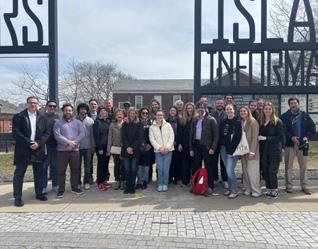
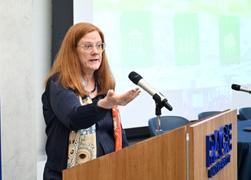
Home to the nation’s top-ranked Environmental Law Program, Pace Haub Law has been at the forefront of environmental legal scholarship, policy advocacy, and experiential learning for decades. Through events like this symposium, the program continues to be at the forefront of environmental legal education and innovation. Two special symposium editions of PELR will be published later this year.
The symposium also spotlighted the Tax Program at Pace Haub Law. The Law School has a longstanding history of educating students in business and tax-related matters. During their time at Pace Haub Law, students benefit from a range of tax-related coursework; several graduates have gone on to pursue advanced tax degrees at top institutions nationwide. Pace Haub Law graduates who are interested in taxation pursue careers in law, business, and public service with employment opportunities in large accounting firms, law firms of all sizes, businesses, and non-profit organizations.
Of the symposium, Mackenzie Wittig ’25 later reflected that, “This was a stimulating program that got so many of us thinking about the ways that tax law is integral to environmental law and vice versa. There is no doubt that we need lawyers with expertise in both fields, and this symposium framed the issues in a way that was both educational and inspiring.” n
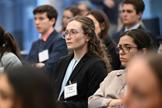
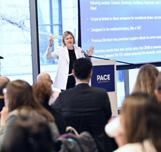
The Elisabeth Haub School of Law at Pace University Environmental Law Program held the second annual private environmental governance, sustainability, and ESG legal scholarship workshop. The half-day lightning workshop included an impressive gathering of environmentally focused scholars who spent the day workshopping new scholarship. This year’s workshop was developed by Professor Josh Galperin, who also moderated the event.


For the third consecutive year, the Elisabeth Haub School of Law at Pace University partnered with the Westchester County Association to host its Annual ‘Profit and Purpose’ Sustainable Business Conference at the Law School. The conference brought together well over 100 business, nonprofit, and government leaders to discuss how businesses are innovating around climate change and social responsibility and inspire organizations to apply these principles to advance ESG in their practices. The half-day conference offered four panel discussions featuring experts in energy policy, business strategy, finance, law and compliance, including two panels led by several Pace Haub Environmental Law faculty and alumni.
Professor Laura Portuondo of the University of Houston Law Center was selected as the winner of the Elisabeth Haub School of Law at Pace University’s 2024–2025 Emerging Scholar Award in Women, Gender & Law for her paper Gendered Liberty, 113 Geo. L. Rev. __ (forthcoming 2025). Professor Portuondo is an Assistant Professor; she teaches Constitutional Law and Reproductive Rights and Justice.

The Elisabeth Haub School of Law at Pace University is proud to announce that the third annual class of Sustainable Business Law Hub Student Scholars (Hub Scholars) was selected. The Hub Scholars Program was launched in 2023 as an integral part of the Sustainable Business Law Hub in fostering the next generation of legal leaders in sustainable business and ESG (environmental, social, and governance). An incredible benefit of being one of the selected Hub Scholars is the opportunity to participate in a coveted ESG internship or externship at prestigious law firms, financial institutions and businesses.


Singapore’s Ambassador for International Law, Rena Lee, and Kristina Maria Gjerde, Senior High Seas Advisor to the International Union for Conservation of Nature (IUCN) were awarded the prestigious 2024 Elisabeth Haub Award for Environmental Law and Diplomacy. This recognition, celebrated at a ceremony in New York City and broadcast virtually around the world, honors their pivotal contributions to the United Nations Agreement on Biodiversity Beyond National Jurisdiction (BBNJ), an essential international framework for conserving biodiversity in the high seas.
The prestigious annual Future Environmental Law Professors Workshop is designed for Visiting Assistant Professors, Fellows, Researchers, Law Clerks, Practitioners, and others, including current students, who are currently, plan to go on, or are considering the academic teaching market in the areas of environmental law, natural resources law, food and agriculture law, energy law, land use planning, and/or ocean and coastal resources law. The full-day workshop allows participants who have the shared goal of entering the environmental law academic teaching market to learn from established environmental academics.

The Elisabeth Haub School of Law at Pace University hosted the 23rd annual Alfred B. DelBello Land Use and Sustainable Development Conference. This year’s theme, Fostering the Development of Sustainable Communities through Innovative Strategies, brought together hundreds of attorneys, professionals, and local leaders to discuss best practices in land use and sustainable development. The conference was preceded by the Founder’s Award Reception where three individuals were honored: Geraldine N. Tortorella, Esq., ’97, a founding partner of Hocherman Tortorella & Wekstein, LLP, received the Founder’s Award for her career-long commitment to community collaboration and positive change;

Anne Kline ’12, an associate at DelBello Donnellan Weingarten Wise & Wiederkehr, LLP, was honored with the Distinguished Young Attorney Award for her contributions to land use and real estate law; and Sophie Coassin, a current Pace Haub Law student, received the John R. Nolon Student Achievement Award for her dedication and commitment to excellence in fulfilling the mission of the Land Use Law Center.

Bridget G. Brennan, New York City’s Special Narcotics Prosecutor was honored with the Law School’s 2024
Robert S. Tucker Prize for Prosecutorial Excellence at a ceremony attended by district attorneys, fellow prosecutors and other members of the legal community on Pace University’s New York City campus. Brennan was honored for her outstanding contributions to the field of criminal prosecution and excellence in prosecutorial practice, highlighting her innovative leadership in establishing alternative programs for combating the growing drug epidemic throughout New York’s five boroughs. The Robert S. Tucker Prize for Prosecutorial Excellence is awarded annually to an individual or a group of individuals who have made outstanding contributions to the field of criminal prosecution and who demonstrate excellence in prosecutorial practice.
The Pace Women’s Justice Center (PWJC) hosted its 2024 “Raising the Bar” Benefit Concert, a pivotal event dedicated to raising awareness and support for victims and survivors of domestic violence, sexual assault, and elder abuse. The concert took place at the historic Capitol Theatre in Port Chester, NY, featuring a special performance by the Grammy-winning duo, Indigo Girls. The “Raising the Bar” Benefit Concert is PWJC’s largest fundraising event of the year.


The 37th Annual Jeffrey G. Miller National Environmental Law Moot Court Competition (NELMCC) at the Elisabeth Haub School of Law at Pace University once again brought together hundreds of law students, legal scholars, and practicing attorneys for one of the nation’s largest and most prestigious interschool moot court competitions. This year, 48 schools from across the country participated, with Lewis & Clark Law School emerging as the 2025 NELMCC Champions. Additionally, the Nicholas Robinson Award for Distinguished Environmental Achievement was presented to Peter Casper ’01.
This year’s conference analyzed changes and emerging issues in environmental law in a collaborative atmosphere. Organized by students from the Elisabeth Haub School of Law at Pace University, Yale Law School, Yale School of the Environment, and Vermont Law & Graduate School, the event featured insightful discussions on pressing environmental issues. This year, Pace Haub Law faculty and students played key roles building up to and during the NDEL Conference –organizing, moderating, presenting, transcribing, and volunteering.

The Pace Women’s Justice Center (PWJC) hosted its annual Cocktails for a Cause fundraiser at the waterfront Barley Beach House, gathering community leaders, advocates, and supporters to help raise vital funds for survivors of domestic violence, sexual assault, and elder abuse. The event, which came at a critical moment as domestic violence cases continue to rise across Westchester County and nationwide federal funding for domestic violence services remains under scrutiny, served as both a celebration of resilience and a call to action. Guests enjoyed an evening of signature cocktails, raffles and auction items, and heartfelt stories that underscored the importance of PWJC’s mission and legal advocacy.

The Elisabeth Haub School of Law at Pace University announced the appointment of an accomplished leadership team to continue to guide its top ranked Environmental Law Program into the future. Haub Distinguished Professor of Environmental Law, Katrina Fischer Kuh, will serve as Faculty Director of the Environmental Law Program. Achinthi C. Vithanage, Professor of Law for Designated Service in Environmental Law and Associate Director of Environmental Law Programs, will assume the role of Executive Director of the Environmental Law Program. Additionally, Josh Galperin, Associate Professor of Law, will take on the role of Faculty Director of the Sustainable Business Law Hub.

This leadership transition follows the impressive tenure of Jason J. Czarnezki, who has overseen the program since 2013. Under his guidance, the Environmental Law Program rose to new heights, achieving a #1 ranking in Environmental Law by U.S. News & World Report for the sixth time and the fifth consecutive year in 2025. Professor Czarnezki departed the Law School to become the next Dean of Chicago-Kent College of Law at Illinois Institute of Technology.
Pace University’s Elisabeth Haub School of Law is once again ranked #1 in the country for Environmental Law by the latest U.S. News and World Report rankings. The Law School was also ranked #19 in the nation for its trial advocacy program as well as #18 for Dispute Resolution. Several other programs at Pace Haub Law were recognized in the top rankings this year, including International Law, Health Law, Tax Law and the Law School’s Part-Time Program.
“For five years in a row, the Law School has received the number one ranking for Environmental Law,” said Dean Horace E. Anderson Jr. “Our Environmental Law Program extends beyond the classroom, offering opportunities through our renowned Environmental Litigation Clinic, our Food and Farm Business Law Clinic, our Sustainable Business Law Hub, numerous internship and externship opportunities, and much more. We are also tremendously proud of the continued success of our trial advocacy program. Our students learn by example, both in and out of the classroom, and we are fortunate to have top advocates guiding our students. Pace Haub Law continues to excel in all facets – with leading-edge programs, top faculty, innovative scholarship – attracting high performing students who will guide us as future leaders and advocates.”
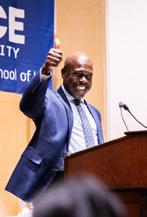
Basil Seggos ’01

is a Partner and Senior Policy Director at Foley Hoag, LLP. Prior to joining Foley Hoag this summer, Mr. Seggos served as the longesttenured Commissioner of the New York State Department of Environmental Conservation, from 2015–2024. He is widely known for his extensive experience creating and implementing groundbreaking policy focused on energy, climate, and the environment in both federal and state contexts. Among his many career accomplishments, Mr. Seggos was instrumental in the passage of New York’s nation-leading climate change law, the Climate Leadership and Community Protection Act, and served as the co-chair of its implementing body, the Climate Action Council. He also devised and was responsible for the $5.5 billion Clean Water Infrastructure Act and the state’s $4.2 billion environmental bond act. Mr. Seggos served as an officer in the US Army Reserve.
OFFICERS
Kathleen Donelli ’85
Hattar ’91 is a Partner in the White Plains and New York offices of Wilson Elser Moskowitz Edelman & Dicker, LLP. She is a seasoned litigator and former prosecutor, who has significant trial experience in all courts throughout New York State. Ms. Hattar focuses her practice on general tort liability and complex litigation, including premises liability, labor law/construction accident matters, and transportation/trucking litigation. Earlier in her career, she served for six years as an Assistant District Attorney in the Office of the District Attorney, Bronx County, NY. In addition to her practice, Ms. Hattar is an elected Director for the Westchester Women’s Bar Association (WWBA), co-chairs the WWBA’s Litigation & DEI Committees, and is a two-term past Vice President of the WWBA (2019–2021).
Alfred E. Donnellan ’81

BOARD OF VISITORS CO-CHAIR BOARD OF VISITORS CO-CHAIR
MEMBERS
Mayo Bartlett ’92
Brian T. Belowich ’99
Vernon J. Brown ’96
Steven J. Chananie ’83
Jeffrey J. Delaney ’92
Lisa M. Denig ’09
Amy F. Divino ’91
Anthony J. Enea ’85
Christopher B. Fisher ’94
R. Nadine Fontaine ’94
Susan E. Galvao ’93
Angela M. Giannini ’88
Peter S. Goodman ’86
The Honorable Philip M. Halpern ’80
Jacqueline Hattar ’91
Paul Humphreys ’09
The Honorable James L. Hyer ’05
The Honorable Linda S. Jamieson ’79
Diana Bunin Kolev ’05
John C. Lettera ’99
Caesar A. Lopez ’12
Senator Shelley B. Mayer
Judson Siebert ’85 is a Member at Keane & Beane P.C. His practice is devoted to the representation of public and private sector clients in litigation involving land use, municipal, real property, and real property tax assessment disputes. Mr. Siebert also represents builders, property owners and developers, commercial enterprises, utilities, and individuals in land use applications before local zoning and planning boards throughout southeastern New York State. He has assisted his clients in securing approvals for residential, commercial, franchised business, biomedical research, wireless communication, sewer and water utility, and public purpose projects. In addition, Mr. Siebert serves as special counsel to the governing bodies of cities, towns, and villages, as well as counsel to local planning and zoning boards of appeals.
William M. Mooney III ’92
Leslie Morioka ’93
Richard L. O’Rourke ’81
Felipe Páez ’96
Joseph M. Pastore III ’91
Jerold R. Ruderman
Paul C. Saunders

The Honorable Anthony A. Scarpino, Jr.
Basil Seggos ’01
Judson K. Siebert ’85
Christopher J. Wallace ’97
Award recipients embody the values of Justice Sondra M. Miller and Judge Lisa Margaret Smith through service, leadership, and a commitment to justice.
The Westchester Women’s Bar Association Foundation (WWBAF) has once again recognized outstanding Elisabeth Haub School of Law at Pace University students through its prestigious Justice Sondra M. Miller Scholarship, awarded in honor of Justice Miller’s legacy as a founding member and past president of the Westchester Women’s Bar Association (WWBA). This year’s recipients, Stella Capparelli and Stephanie Gonzales, were selected for their dedication to community service and their legal education. In celebration of the WWBA’s 50th anniversary and to honor the lasting contributions of the late Judge Lisa Margaret Smith and the late Judge Miller, WWBAF also awarded three additional special scholarships to Pace Haub Law students Elida Loci, Morgan Shanske, and Tamika Thomas.
Susan Corcoran ’90, President of the WWBAF, shared that every candidate submitted an impressive application this year. “Both award recipients of the Justice Sondra M. Miller Scholarship exhibit extraordinary dedication to community service and the study of law,” said Susan. “They have had amazing achievements in their law school experience.”
During her time as a student, Stella Capparelli was a senior associate on the Pace Law Review, interned at the United States District Court for Southern District of NY, mentored other law students as a Dean’s Scholar, and served as a resident director in the school dormitory – all while achieving academic honors.
Stephanie Gonzales attended the Law School part-time while working full-time. She participated in the Disability Rights Clinic, the School Improvement Committee, was a Student Bar Association Representative, and mentored numerous law students. The Westchester County Executive also recognized Stephanie as an employee who went “Above and Beyond.”



This year, the WWBAF awarded additional scholarships in celebration of the WWBA’s 50th anniversary and in honor of the late Judge Lisa Margaret Smith and the late Judge Miller. Judge Smith served for 25 years as a United States Magistrate Judge for the Southern District of New York until her retirement in 2020. She also taught Evidence, Federal Courts, and Civil Procedure as an Adjunct Professor at Elisabeth Haub School of Law at Pace University from 2006 to 2020. “The three recipients of this year’s special scholarship awards had many remarkable achievements,” shared Susan. “Elida Loci assists underserved families locally and abroad and participates in the Immigration Justice Clinic. Morgan Shanske provides professional development services to at-risk youth and conducts workshops at a juvenile detention center. Tamika Thomas is employed as a full-time educator and participates in numerous environmental and community organizations.”
“WE COULD NOT ASK FOR MORE PERFECT CANDIDATES TO REPRESENT THE VALUES AND LIFE WORK OF OUR OWN JUSTICE SONDRA MILLER, JUDGE LISA MARGARET SMITH, AND THE WWBAF.”
SUSAN CORCORAN ’90 | PRESIDENT, WWBAF
“All five scholarship recipients clearly fulfill the mission of the WWBAF – ‘…to promote the fair and equal treatment of all people in society, the workplace, schools and court system,’” said Susan. “We could not ask for more perfect candidates to represent the values and life work of our own Justice Sondra Miller, Judge Lisa Margaret Smith, and the WWBAF.” n
FROM PRIVATE SECTOR TO PUBLIC INTEREST, THESE GRADUATES HIGHLIGHT THE VERSATILITY OF AN ELISABETH HAUB SCHOOL OF LAW AT PACE UNIVERSITY EDUCATION.

Hannah Conlon Associate Gordon Rees Scully Mansukhani, LLP

Natalie Lara Environmental Transactions Associate Kirkland & Ellis

Gigi Quatrone Junior Associate Freshfields

David Skjerli Army Judge Advocate United States Army Judge Advocate Corps

Dana Gour Wealth Management Associate Goldman Sachs

Silvana Martinaj Associate Yankwitt LLP

Tyler Justic Assistant District Attorney Bronx District Attorney’s Office

Madison Lane Assistant District Attorney
Queens District Attorney’s Office

Patricia McKee NOAA Sea Grant, John A. Knauss Marine Policy Fellowship Executive Fellow, U.S. Committee, Marine Transportation System

Jeremy Perillo Associate Kennedys Law LLP

Janay Russo Federal Judicial Law Clerk Northern District of Georgia

Sheila E. Tapia Associate Bond, Schoeneck & King

Evelina Safanova Assistant District Attorney Brooklyn District Attorney’s Office

Sidney Verghese Assistant Public Defender
Montgomery County Public Defender’s Office

Joseph Seminara Assistant Law Clerk New York Court of Appeals

Megan Vecere Assistant District Attorney Manhattan District Attorney’s Office
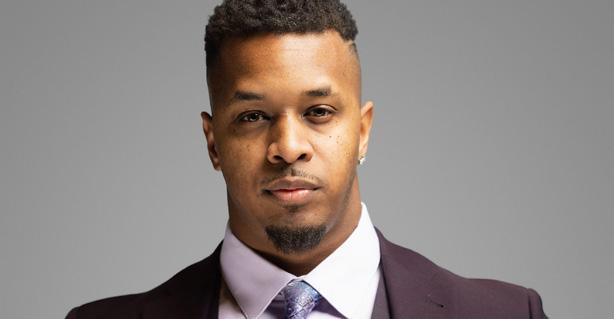
The youngest of seven, Kyle Davis-Edwards ’25 grew up in a loving, humble household where his parents held him to high expectations. “My parents enrolled me in a private high school with the expectation that I excel in the school’s top tier sports and academic programs,” shared Kyle. “While my parents were strict, it was their guidance that cultivated me into the disciplined and driven person I am today.”
A first-generation law student, Kyle describes himself as someone who always wanted to be a catalyst for change – a fixer. “Growing up, I saw many problems within my community. I wanted to right all the wrongs that I saw in the world. I learned quickly that one way to do that was to study law and become a lawyer. I didn’t know any lawyers in my community, so I decided to be the first.”
For Kyle, pursuing his legal studies at the Elisabeth Haub School of Law at Pace University was a natural fit. “I loved my law school experience. There are so many people from so many places, and we acknowledge that we are all collectively in the same “fight.” The Law School campus community has always been a safe space where people and their views feel safe, respected, and heard. Pace Haub Law has what every student should want in their academic experience.”
The classroom experience for Kyle is one that stood out to him, in particular his classes with Professor Smita Narula. “From day one, Professor Narula made sure that all students felt safe in her classroom. She fostered a classroom that empowered us to open our minds and explore more. She also always made herself available to students for any academic help in understanding complex legal issues.”
During his time in law school, Kyle pursued a variety of hands-on legal experiences as well. He interned with Roc Nation, with the Brooklyn County District Attorney’s Office, as a Criminal Justice Clinic Student Attorney, and at a private firm. “I gained so much from each of my
internship experiences,” said Kyle. “I would like to pursue a career in entertainment law and intellectual property law and these experiences have helped to solidify that for me.”
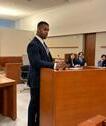
While balancing his studies, Kyle was also an active member of several student organizations and also participated in the Black Entertainment Sports Lawyers Association (BESLA). “I had the opportunity through BESLA to participate in their 44th Annual Conference held in Mexico. It was a very humbling and inspiring experience.” Throughout the conference, Kyle spoke on several topics, including how to leverage internships experiences for in-house roles, the modernization of streaming royalties and artist advances, as well as how to prioritize health and wellness, specifically while in law school. At the conference, Kyle was awarded the BMW Ultimate Achiever Award, for his scholastic and extracurricular achievements. “I made so many connections at the BESLA Conference and spoke at length about my positive experiences at Pace Haub Law.”
His advice for future and current law students is to network, get involved early, and don’t give up. “From humble beginnings to the milestone moments I’ve achieved, my story is a testament to resilience, determination, and the power of a strong support system.” Kyle also stressed the importance of finding time to unwind. “If I wasn’t studying in the library, you could undoubtedly find me at the gym or a restaurant in Manhattan eating with friends and family. I like concerts and sports games. Law school is tough, but a Knicks game was certainly the inspiring reset needed to push through.”
Kyle is excited to begin his legal career with the Suffolk County District Attorney’s Office. “I look forward to sharpening my litigation skills and becoming the advocate that people need. I want to contribute to the legal field in a meaningful and purposeful way, using my voice where it matters most and in pursuit of true, fair, and equitable justice.” n
’25 PROVES THAT DETERMINATION
GO A LONG WAY IN
Joe Seminara ’25 has a challenging undergraduate constitutional law class to thank for propelling his law school journey. “I come from a large Italian family,” shared Joe. “I was the first in my family to graduate from college. There are currently no lawyers in my family or even extended family. I always gravitate to things that I find challenging, and going to law school was just that. When I was a sophomore in college, I took Constitutional Law which was, at the time, known as one of the most challenging classes at my college. I spent hours just trying to understand the fundamentals of the class, feeling like I’d never make it to the final, when my professor asked me if I had any aspirations for law school. While I sort of laughed at his question, the idea stuck and after some research, I decided to pursue a legal education.”
Joe chose the Elisabeth Haub School of Law at Pace University because of its location close to his home and the school’s reputation for producing successful attorneys. “Pace Haub Law exceeded every single expectation I had,” said Joe. “I really appreciate the sense of community. It never felt like a competition; everyone wants to see each other succeed. Pace Haub Law alumni were also generous with their time and advice to current law students.”
Generosity of time extended to the faculty as well, recalls Joe. “Professor Bridget Crawford was an excellent mentor. She believed in me when I wasn’t sure I believed in myself.” After excelling in her Federal Income Tax course, she asked Joe to serve as her Teaching Assistant – an opportunity that surprised and motivated him. Joe excelled once again and went on to become Professor Crawford’s Teaching Assistant for Wills, Trusts & Estates as well. “Professor Crawford encouraged me to put my best foot forward and truly made me feel like there was a place for me at the Law School to not just be a student, but to contribute to something larger and help others,” shared Joe.
Joe fully immersed himself in academic and extracurricular life at the Law School. In addition to serving as a Teaching Assistant, he was a Dean’s Scholar, Articles Editor for the Pace International Law Review, and a participant in the Advocacy Program’s ABA Law Student Tax Challenge. Joe also spent his 1L and 2L summers working at firms
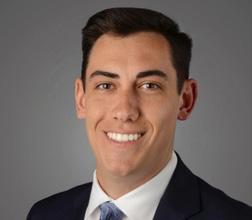
and gaining exposure to varied areas of law. “I had so many diverse experiences during my time in law school, which really helped shape my professional goals.”
Joe’s hard work paid off. After he takes the bar exam he will begin as an Assistant Law Clerk for a New York Court of Appeals Judge, a very coveted and prestigious opportunity within New York’s highest court. After his clerkship, he hopes to join a law firm in New York City.
His advice for success to future law students is simple: “Get involved. Network. Be comfortable with being uncomfortable at times. Take varied classes. Pursue every opportunity available. Law school is hard. However, if you are willing to put the time in you will be rewarded.” n
“I HAD SO MANY DIVERSE EXPERIENCES DURING MY TIME IN LAW SCHOOL, WHICH REALLY HELPED SHAPE MY PROFESSIONAL GOALS.”
JOE SEMINARA ’25
Growing up, Samuel Carvalho ’25 LLM dreamed of being a diplomat, an ambition that led him to pursue a law degree at the Universidade Federal do Ceará in Fortaleza, Brazil. However, during his time pursuing an LLB, he had the opportunity to work alongside environmental organizations serving under-resourced communities. This experience was the beginning of a new passion for Samuel.
A turning point came when he participated in a workshop with children in one such community. During this workshop, the children were asked to draw their ideal community. They drew pictures of lush landscapes with an abundance of trees, flowing streams, and green open spaces. The contrast between these visions and the environmental reality surrounding them was stark. This difference lit a fire for Samuel and he became impassioned to be an advocate for people to have access to healthy environments and ecosystems.
Samuel’s growing commitment to studying environmental law in law school continued when he decided to dedicate his thesis to the study of mangrove ecosystems and the REDD+ initiative, a global program aimed at reducing greenhouse gas emissions through forest conservation. After earning his LLB at Universidade Federal do Ceará, Samuel accepted a position as an associate for a tax law firm. Although he found the work interesting, he was still passionate about pursuing a career in environmental law. Samuel decided the next best step for him would be to pursue an LLM in Environmental Law, which led him to the Elisabeth Haub School of Law at Pace University.
Samuel was drawn to Pace Haub Law’s LLM in Environmental Law because of its top national ranking and the depth of its curriculum. He was particularly interested in the courses and opportunities in International Environmental Law, Sustainable Business, and Environmental Law in Commercial Transactions. “When I arrived, I was so impressed by the small class sizes and how the faculty showed genuine care for their students,” recalls Samuel. He is particularly grateful for the mentorship he received from Professor Achinthi Vithanage, who he notes took a meaningful interest in helping him refine his focus within environmental law.
While he was at the Law School, Samuel took every opportunity to be engaged in the law school experience. “I wanted to be involved and learn everything I could,” he shared. Samuel served as the LLM liaison for the Law School’s Environmental Law Society and was selected as a Sustainable Business Law Hub Student Scholar. He also proudly represented Pace Haub Law as a student ambassador at the American Bar Association’s Section of Environment, Energy, and Resources (ABA
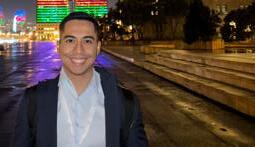

SEER) conferences and NY Climate Exchange events.
It was during his final year at the Law School that Samuel learned of an opportunity to enter the SUAD YOUTH COP, a prestigious global mock negotiation competition. Samuel entered the competition with an exchange student from Paris, Séverine Ginot, who studied at Pace Haub Law the previous year. The SUAD YOUTH COP competition brought together teams from around the world for an intense 3-day competition. Samuel and Severine’s ability to navigate complex issues set them apart and helped them secure a spot at COP29, the 29th United Nations Climate Change Conference, which was held in Baku, Azerbaijan. At COP29, Samuel, along with other students, was selected to present an official panel, entitled “Youth Voices for a Sustainable Future: Oceans, Biodiversity, and Energy at COP29.” Samuel attributes his success at COP29 in large part to the preparation he received through his coursework at the Law School. With a strong and diverse academic foundation, he felt confident navigating the high-level conversations and complex issues presented during the competition. “I knew I had a great current knowledge across a wide range of environmental law topics,” he said.
When asked his hope for the future within environmental law, Samuel doesn’t hesitate, “My dream is that we’re able to meet the goals of the Paris Agreement goals and be within 1.5 degrees Celsius,” he shared. “And that people can enjoy the environment and respect the laws that protect it.” Most recently, Samuel was honored as the LLM recipient of the 2025 Dean’s Award, the Law School’s highest honor for academic excellence, service, and leadership. Currently, Samuel is preparing for the bar exam this July and contemplating if he will pursue a Doctor of Juridical Science (SJD) or begin his professional career. “Whether I pursue an additional educational degree or start my professional career, I will be using the tools I gained at Pace Haub Law to advocate for a more just and sustainable planet,” said Samuel. n
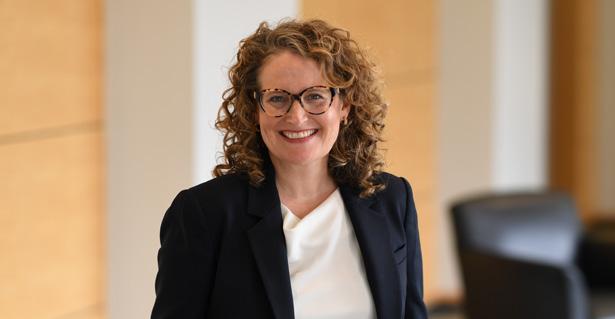
For Amanda (Mandy) Howerton-Fox ’27, deciding to attend law school was not just a career shift—it was a natural continuation of her lifelong commitment to advocacy. A former teacher of the deaf, Mandy’s passion for special education and disability rights first led her to pursue a PhD and become a tenured professor of education. Now, she has embarked on a new path at the Elisabeth Haub School of Law at Pace University, with a goal of effecting change through law and policy while advocating for people directly.
“Both of my parents were first-generation college students, and I am the first in my family to earn a doctorate and attend law school,” Mandy shared. “I pursued a PhD to drive change in deaf education through research, teaching, and advocacy, but I realized I wanted to have a more direct impact. That’s what led me to Pace Haub Law.”
Mandy’s experiences as an educator and through her educational pursuits have given her a unique perspective as a law student. Today, she balances her legal studies with continued advocacy and academic leadership. Mandy is on the editorial board of the American Annals of the Deaf, one of the two premier academic journals in deaf education, and is also a reviewer for the American Board of Deaf and Hard of Hearing Specialists. With a strong passion for education, she is an Adjunct Professor at Iona University and co-directs the Interdisciplinary Advanced Certificate in Working with Young Deaf and Hard of Hearing Children and their Families (IACD): an advanced certificate program for special educators and speech language pathologists who want to work in early intervention with deaf and hard of hearing children. Impressively, Mandy co-founded the program with a $1.25 million grant from the U.S. Department of Education.
Having just wrapped up her 1L year, Mandy has found Pace Haub Law
to be “an incredibly warm and supportive environment with a deeply engaged student body and an impressive range of clinical opportunities.” She has found Professor Randolph McLaughlin and Professor Camila Bustos particularly inspiring, Professor Leslie Tenzer an extremely dedicated and caring educator, and even found an interest she did not expect in property law after taking the course with Professor Margot Pollans – a subject she now describes as fascinating. “There is no shortage of amazing teachers at the Law School. They are all incredibly supportive and engaging.” Mandy has also found community within several student organizations. “I serve as the Vice President for the Public Interest Law Students Organization (PILSO) and Older Wiser Law Students (OWLS). A student organization like OWLS has been an opportunity to connect with other career changers who have come to the law with clear intentions and who are also juggling work and family responsibilities. I enjoy the energy of my younger classmates, and it’s been equally nice to meet law students with shared life experiences. I have also joined the Law School’s Honor Board.”
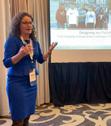
Mandy will also work as a research assistant for both Professor Michael Mushlin and Professor Camila Bustos and she has joined the competitive Pace Law Review. This summer Mandy will participate in an internship position with NYU’s Center on Race, Inequality, and the Law. This fall, she has accepted an externship opportunity at the Hudson Valley Justice Center. Next summer, she will work as a summer associate with Davis Polk & Wardwell LLP. “My journey at Pace Haub Law has just begun and I am excited to see where it takes me,” said Mandy. “Right now, my passion lies in civil rights litigation, and I would be thrilled with any position that allows me to advocate for marginalized individuals and groups.” With her unique background and ambition, Mandy is poised to make a lasting impact in the legal field wherever her path may lead. n
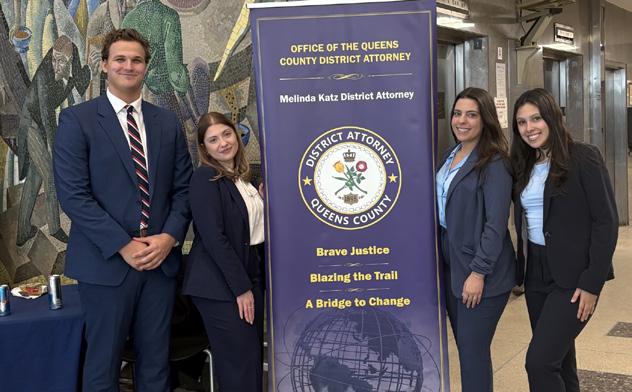
In recent years, the Trial Advocacy Program at the Elisabeth Haub School of Law at Pace University has earned a significant national reputation for transforming students into effective advocates and preparing them for rewarding careers outside of law school—and its success keeps growing. The Law School’s program is currently ranked #19 in the nation by U.S. News & World Report and is recognized among the top 10% of schools in the nation.
The Advocacy Program is the beating heart of a law school that prides itself on practical training. The program synthesizes classroom learning, real world observation, simulated courtroom classes and a strong foundation in legal skills and substantive law. It has been led for decades by dedicated Director of Advocacy Programs and Professor of Trial Practice, Louis Fasulo ’83, with the support of professors, students, and alumni and volunteer coaches—all who are successful practitioners and share the same commitment to the Law School.
“Pace Haub Law has been extremely supportive of me and the Advocacy Program,” Professor Fasulo said. “When I started, we did not have a comprehensive program, but with the support of the deans, the faculty, staff, and committed enthusiastic students we developed a tremendous, top ranked program that we are all very proud of. However, the most important element of our success is our students. Our students work hard, respect each other and care as much about our program as I do. Their passion and drive to develop the lawyering skills of great advocates drive our program. They are truly invested. In all their
successes, our students have become very effective brand ambassadors for our Advocacy Program nationwide.”
In moot court, simulated trials, and dispute resolution and negotiation sessions, students argue cases, and provide legal representation to clients in a wide range of practical skills courses. They receive professional feedback on their performance by peers, faculty, practicing attorneys, and judges, and gain exposure to areas of law in which they are considering careers. Designed by experienced attorneys, the program equips students with the skills, strategies, and confidence needed to excel in the courtroom and conference room. In addition, the program sponsors a series of lectures featuring noted attorneys who provide insight into complex litigation matters. These seminars allow students a chance to question top litigators on strategy and technique, providing a forum for advanced intellectual discussion of modern trial problems.
“Our course offerings are among the most varied that I have seen,” said Professor Fasulo. “These courses give our students the foundation they need to become successful advocates. Throughout both the courses and experiential opportunities, students are given an opportunity to develop skills in openings, closings and examinations. Our comprehensive program interfaces with the traditional curriculum allowing all students an opportunity to experience the vigor of a trial in a controlled simulated environment. Students’ knowledge of substantive law is integrated in an intensive course study of trial skills. The caliber of our teaching faculty in the advocacy area and the ability of these professors as practitioners to bring real world practice into the classroom is transformational.”
Marc Bisogno ’25 joined the Advocacy Program after his first year and became deeply involved with the Alternative Dispute Resolution, including being elected ADR Director at the end of his 2L year. Over the course of his time in the program, he competed in several sports negotiation and arbitration competitions. He also participated in nine ADR competitions, advancing in a number of them. This past spring he also coached a team, which was an “incredible experience,” Marc said. “It allowed me to apply everything I learned from my own experiences and use that knowledge to guide the team in the right direction,” he said. Alternative Dispute Resolution has become an area of prestige at Pace Haub Law as well, with a resulting recognition in the rankings. The School offers robust curricular and extracurricular opportunities for students to explore and develop skills in alternative dispute resolution (ADR) processes, and learn about the law governing those processes.
“My time as a member of the Advocacy Program was incredibly valuable in preparing me for my legal career,” shared Marc. “During my first few competitions, I struggled with a lack of confidence when speaking publicly. However, as I became more comfortable speaking in front of others, my confidence grew significantly. These competitions simulate real-life situations, allowing me to gain a sense of what to expect before entering the workforce. This experience will undoubtedly give me a leg up as I start my career,” he said.
Pace Haub Law graduates who have participated in the program have experienced some of the most successful bar passage and job placement outcomes, shared Professor Fasulo. Many have gone on to careers as assistant district attorneys, public defenders, private criminal defense lawyers and litigators, and return to impart their knowledge on students as coaches and mentors of the program.
Louis V. Fasulo is Professor of Trial Practice and Director of Advocacy, Moot Court, and Client Skills Programs at the Elisabeth Haub School of Law at Pace University. Professor Fasulo is also a founding partner in the law firm Fasulo Giordano & Di Maggio. For more than 30 years, Professor Fasulo has made an impact on a countless number of law students and developed a top-ranked advocacy program at the Law School.
“When I graduated from law school, I went to work at the Legal Aid Society in Manhattan, I served there in a variety of capacities. Along the way, I ran into the then current teacher of trial advocacy at Pace. She was going on trial and needed help in the classroom, so I helped and I loved it,” Professor Fasulo said. “That in turn led to me getting my first class, and then Dean Emeritus Richard Ottinger appointed me as the first ever Director of Trial Advocacy at the Law School in 1996 and I have been here since, furthering my involvement along the way.”
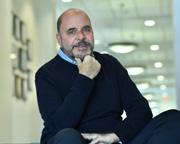
The Pace Haub Law Advocacy Board oversees the many competitions and provides a wealth of support for the program. Board Executive Directors help fellow students sharpen their advocacy skills, raise funds, attract guest speakers, and host lectures and events on campus.
As an Executive Director, Madison Lane ’25, was very involved in the Law School’s Advocacy Program. She also participated in several mock trial competitions, which occupied a good deal of her time. “This program provided me with real-world experiences and skills that you cannot acquire in a traditional classroom setting. Competing in mock trial competitions significantly enhanced my ability to think on my feet, trust my instincts, and draw upon all the preparation I have done to become the best advocate I can be,” Madison said. “It also boosted my confidence beyond the courtroom, making me feel more comfortable in professional settings and discussions.”
“What sets our Advocacy Program apart from those at other schools,” said Professor Fasulo, “is that we have a deep-rooted commitment in developing the individuality of each advocate and focusing on what personal attributes that advocate brings to the table. We work on developing each individual advocate’s skillset. We want to find which skills will best serve that particular law student in their legal career. We also provide great mentorship and a wealth of opportunities for our students to get experience before graduation.”
Professor Fasulo also teaches and has run an international law program in comparative advocacy in Oxford England, for Stetson University Law School, and teaches in Iceland at the Ohio Northern University and University of Iceland joint advocacy program. He is also the President of the Board of Directors of New York County Defender Services, a group of over 100 trial lawyers providing defense representation in New York City. Professor Fasulo has led New York City Police Department Detective Training on direct and cross examination. He is also a lecturer on closing arguments for the New York City Law Department and teaches in their NITA program. He also lectures at the Educating Advocacy Teachers Conference (EATS) annually, a conference hosted by Stetson Law for almost two decades and well-known in the Advocacy community. Before completing his Elisabeth Haub School of Law at Pace University JD, he earned a BA at Drew University.
“Teaching has always been my greatest passion. I love the courtroom, but I am truly passionate about teaching,” Professor Fasulo said. “It has been a true blessing to be at the Law School in the capacity I am. Nothing makes me happier than watching the journey of my students in practice.” n
Continued on next page.
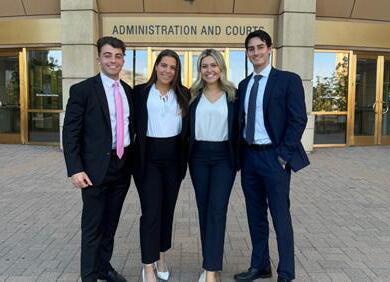
Recent graduate Tyler Ford ’25 said that as an Advocacy Board member he helped facilitate the program’s success by working with each individual competition team to perfect their oral arguments. He added that as a participant in the Advocacy Program, he has competed in multiple moot court competitions including the Jessup, New York Bar Association National Moot, and the Grand Moot.
and also maintains a busy work schedule as Senior Counsel with the New York City Law Department, but always makes time to support the Advocacy Program.
In addition, the Advocacy Program is supported by more than a dozen faculty members, as well as numerous mentors and coaches. A significant number of the trial advocacy coaches are alumni of the trial advocacy program, returning back to mentor and coach students. “Our program is successful in large part due to our program alumni,” said Professor Fasulo. “It is a full circle moment each time an alumni of the program comes back to support one of our teams. And the amount of time and effort that these coaches put in is truly amazing. They are key to helping us develop talented advocates.”
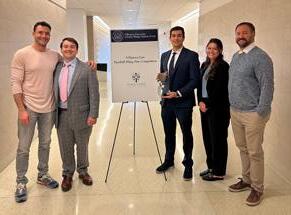
“My experience with the Advocacy Program was entirely invaluable and fostered a passion for appellate advocacy within me,” said Tyler. “I feel confident in saying that without the experience, education, and connections provided to me by the Advocacy Program, I would neither have applied for nor accepted a post-graduation Clerkship in the New Jersey Appellate Division.”
The Advocacy Board also publishes The Advocate’s Advantage blog with articles written by students and faculty on a variety of trial, appellate, and evidentiary issues. The purpose of the blog is to educate participants and the Law School community and share resources and help others in the online community. Adjunct Professor and Trial Advocacy Coach Jared Hatcliffe initiated and oversees the blog, contributing articles frequently as well. “The goal of the blog was to continually educate ourselves, but also share resources and help others through this online platform,” said Professor Hatcliffe. “The Advocacy Program at Pace Haub Law is always looking for ways to further our skills and understanding of the law.” Professor Hatcliffe is a published author
One prominent mock trial coach is alumnus Arthur J. Muller III ’15, who started coaching in 2016. He also lectures as an adjunct professor and trains students during the annual trial advocacy bootcamp.
“We strive to have all our students ‘trial-ready’ by providing opportunities for them to go above and beyond minimum scholastic requirements and push themselves to be an advocate that people will one day want to hire and that our justice system demands,” said Professor Muller, who has dedicated hours of his time to coaching several teams each year and training the new generation of coaches, while working full-time as a civil litigator.
“Competition teams take this even further, with students dedicating months of their already packed semesters to prepare to face off in live trial skills competitions against the robust law schools in the New York area and throughout the nation. Through many nights and weekends of one-on-one training with coaches, self-criticism, feedback and team collaboration, students emerge confident, prepared and ready to face the obstacles of their first trial,” said Professor Muller.
Trial Advocacy Coach and alumnus Daniel Masi ’14, worked with two oral advocacy teams centered around the Major League Baseball salary arbitration process, where students use their advocacy skills to
determine a player’s value. Daniel was introduced to the team while a 1L by Adjunct Professor and Assistant Director of the Law School’s First Year Legal Skills Program, Peter Widulski. While he was a team member, Daniel won the national competition at Tulane out of 40 schools in 2013.
“Since graduating, I couldn’t resist giving back and helping mentor the teams and help grow the Law School’s reputation in this space. In the past decade, we’ve finished in the top eight on numerous occasions, including two runner-ups at the Tulane Baseball Arbitration competition, and recently winning the Villanova Baseball Filing Day Negotiation Competition in 2024,” said Daniel, who is Vice President of Stern Strategy Group.
“The competitions, while focused on baseball, are incredibly valuable to these aspiring attorneys in helping craft compelling arguments, honing oral advocacy skills and putting them in a pressure-filled arena in front of some of the most influential people in the baseball industry,” he said.

“The networking opportunities alone are vital for any student who wants to work in the sports industry. I enjoy seeing the growth in the students from the first meeting to the competition as the turnaround time is only roughly a month in total. There’s a steep learning curve, but their dedication and attention to detail is second to none. They learn the importance of research, crafting a logical and compelling argument and teamwork,” shared Daniel.
Since 2013, alumna Bryn Goodman ’11 has served as co-coach with Adjunct Professor Linda Wayner of Pace Haub Law’s team for the prestigious Willem C. Vis International Commercial Arbitration Moot. “Coaching has been an incredibly enriching experience for me because of the valuable lessons I’ve learned from the students,” said Bryn. “I’ve found that I’ve gained just as much, if not more, from coaching as I did when I was a student myself. It’s a true pleasure to witness the growth of students over the course of the six-month competition.”
Founded by Pace Haub Law, the Willem C. Vis Moot is the world’s premier international commercial law moot court. Held each spring in Vienna, Austria, the moot involves an arbitration of a dispute arising out of a contract of sale between two parties in countries that are parties to the United Nations Convention on Contracts for the International Sale of Goods. While Bryn was a student, she was very involved in the School’s Trial Advocacy Program and in particular, found her participation on the Vis Team to be transformational. “In the program, I spent two years on the Vis Team, which turned out to be the most rewarding experience during my time in law school. We competed against more than 300 teams from around the world, addressing issues related to the validity of arbitration agreements and breach of contract. While it might sound straightforward, it demanded extensive research and rigorous practice to refine our arguments. This experience was the most effective in preparing me for a legal career, and I believe many others in the Trial
“During my time at Pace Haub Law, I was actively involved in the Advocacy Program as both a competitor and a member of the Executive Board. As one of five Executive Directors, I helped fellow students enhance their advocacy skills, collaborated with other board members to raise funds, attracted guest speakers, and hosted lectures and events on campus. Additionally, I served as the Research Assistant to the Program Director, Professor Louis V. Fasulo, supporting the program’s growth and handling various administrative tasks. I also competed in seven external mock trial competitions, including invite-only events like the Tournament of Champions in Houston, Texas, and The Summit Cup in Denver, Colorado. A major accomplishment was when several of my peers and I were the Regional Champions of the National Trial League competition. Through the Advocacy Program, I also had the opportunity to attend a summer program in Iceland, where I studied under remarkable advocacy professors from Iceland, Scotland, and the U.S., sharpening my advocacy skills and making valuable connections with law students from across the country.
“Participating in the Advocacy Program has been incredibly important in preparing me for my future legal career. This program provided me real-world experiences and skills you cannot acquire in a traditional classroom setting. Competing in mock trial competitions has significantly enhanced my ability to think on my feet, trust my instincts, and draw upon all the preparation I have done to best advocate. It has also boosted my confidence beyond the courtroom, making me feel more comfortable in professional settings and discussions. This program has helped me stand out in interviews and conversations, making me a memorable candidate as a future litigator. I know the experiences and skills gained through the Advocacy Program will be vital to my success, and I wholeheartedly encourage other students to seize this incredible opportunity.” n
Advocacy program share this sentiment. It is nice to now be able to share that experience from the viewpoint of a coach and mentor.” Today, Bryn is a Principal in the New York City, New York office of Jackson Lewis P.C.
The hardworking and dedicated coaches, mentors, students, and alumni of the Advocacy Program are recognized through the program’s fundraising events, most notably the Gavel Gala, its signature biennial celebration, held in April 2024 at the Glen Island Harbour Club in New Rochelle, NY. The program’s most recent fundraiser—the Advocacy Affair— included an awards ceremony that recognized the Advocacy Program’s dedicated alumni, students, and volunteers.
Continued on next page.
“The Law School’s Advocacy Program’s unwavering commitment to preparing the next generation of trial lawyers has profoundly impacted me during these last three years, and I find myself continuously inspired by the legacy it is creating. Every mock trial, every objection, every examination…these are not just exercises. They are the shaping of a future where students stand strong and confident, ready to advocate for justice in any courtroom. The experiences I’ve had within this program have taught me that true advocacy goes far beyond knowing the law. It’s about understanding people. It’s about being persuasive and compassionate, strategic and prepared. It’s about speaking with authority, while also exhibiting humility. The Advocacy Program has challenged me to grow in ways I never anticipated. Every critique and every piece of feedback I’ve received from colleagues and coaches has been invaluable in shaping me into the person that I am today. With each lesson, I’ve learned not only how to be a better advocate, but also how to be a more confident, resilient, and capable individual.” n
one another, ultimately finishing as the top two teams. The impressive teams were mentored and coached by alumni Michael Pabon ’22 and Angelica Cancel ’17.
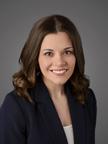
Pace Haub Law’s Black Law Student Association (BLSA) Mock Trial Team delivered a standout performance at the 2024–2025 Constance Baker Motley Mock Trial Competition, with a top-two finish in the entire Northeast region. The Constance Baker Motley Mock Trial Competition was held as part of the 57th Annual Northeast Black Law Students Association (NEBLSA) Regional Convention. Over four days in Boston, the standout team competed in five back-to-back rounds, facing off against 13 teams across the Northeast region. The team was accompanied and coached by Adjunct Professor Betty Lawrence Lewis Esq., Pernell Telfort Esq., and alumni coaches Brianna Pryce, Esq. ’20, and Jamal J. Wyse, Esq. ’19. After months of dedicated preparation, the team traveled to Atlanta, Georgia for the National Competition, finishing strong, ultimately placing fourth in the nation based on preliminary scores, which propelled them to the competition’s quarterfinals where the team finished in the top eight among over twenty competing schools.
“Bringing our program together is our dedicated program administrator, Loretta Musial,” said Professor Fasulo. “Our accomplishments would not be possible without her. She has been there day in and day out, supporting the program and ensuring everything runs smoothly and everyone feels supported. Our Advocacy Program is a family, and Loretta is a cornerstone of that family. As she prepares to retire this year, we are especially mindful of all she has given to the program over the years. We are forever grateful for her unwavering commitment, steady leadership, and the heart she has brought to every part of our work.”
Pace Haub Law students had many impressive performances this past year, with numerous teams finishing at the top and significant numbers of students receiving individual awards and recognition. Recently, the Law School’s Latin American Law Students Association Moot Court teams took home first and second place in the 17th Annual National Latina/ Latino Law Student Association Moot Court Competition held in Puerto Rico over the course of two days. The Law School sent two teams to compete this year and in an exciting final round, the two teams faced
The Law School also hosts a variety of competitions at the school throughout the year, which attract competitors from around the country. The Jeffrey G. Miller National Environmental Law Moot Court Competition (NELMCC) is one of the nation’s largest interschool moot court competitions. Founded in 1989, this past year was the 37th annual Competition and it once brought together hundreds of law students, legal scholars, and practicing attorneys. Each year, Pace Haub Law students have the honor and responsibility of leading the competition and competitors tackle a complex, timely legal problem that reflects pressing issues in environmental law. “We look forward to holding this prominent competition each year,” said Achinthi Vithanage, Executive Director of Environmental Law Programs and Professor of Law for Designated Service in Environmental Law. “The student competitors prepare for months in advance for this rigorous academic exercise, as does our support team at the Law School. Additionally, many of our judges include past competitors and Law School alumni who have been returning as volunteers for over 20 years. I am confident that there is no other competition like NELMCC, which brings along with it a dynamic energy and passion for the intricacies involved in environmental law.”
Each year, the School also hosts the Regional Round for the Americas and the Caribbean of the International Criminal Court Moot Court Competition (ICC Moot). Originally founded by Pace Haub Law, the ICC Moot the world’s first moot court competition based on the law and procedures of the international crime prosecuting tribunal. In March, the Law School once again hosted this qualifying round, which brought seven teams to campus, with the top US teams qualifying for the global ICC Moot Court Competition held annually in The Hague, Netherlands. The Law School’s team qualified as a finalist and traveled to The Hague in June, partaking in an intense competition that included approximately 88 teams from 45 countries. “Pace founded the ICC Moot and as it
has grown into a global competition we now host the qualifying round for American teams hoping to compete in The Hague,” said Professor Alexander K.A. Greenawalt, who serves as faculty director of the Moot. “It was wonderful to have a Pace Haub Law team advancing once again to the global competition.” The team was coached by Bradford Gorson ’13, Stephanie Areford ’24, and David Anderson.
The Law School’s negotiation teams earned major recognition in the Villanova Baseball Filing Day Competition held in October 2024 at Villanova University Charles Widger School of Law, and coached by alumnus Daniel Masi ’14. One of the Law School’s teams advanced to the semi-finals, and another was awarded the highly coveted first-place prize. In March, Pace Haub Law’s Mock Trial Team competed in the Queens District Attorney’s Office 10th Annual Mock Trial Competition, which took place in the court facilities of the Queens Criminal Court. The Pace Haub Law team, coached by Luis Felix ’15, finished in second place out of the 18 nationally ranked law schools.
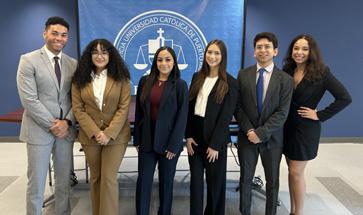
in the Nation, U.S. News & World Report, Trial Advocacy Program Ranking, 2025
The Law School also holds a series of internal competitions and programs to advance the skills of its students interested in trial advocacy. In November of 2024, Pace Haub Law hosted its first-ever LLM Moot Court Competition, offering LLM students from diverse backgrounds the opportunity to argue a First Amendment case in a rigorous, professional setting. The competition not only showcased the advocacy skills of the LLM cohort, but also fostered connections with the broader law school community. “Our inaugural LLM Moot Court Competition reflects the Law School’s commitment to fostering a dynamic and inclusive academic environment while preparing students for the demands of legal practice anywhere in the world,” said Professor Fasulo.
The Louis V. Fasulo First Year Student Moot Court Competition is also an internal competition held annually where first-year students prepare and present arguments before Pace Haub Law Advocacy Board members, attorneys, and alumni. The Competition, named after Professor Fasulo’s long and outstanding work with the program, is the principal source for recruiting outstanding advocates for the Law School’s highly competitive Advocacy Program. The internal Grand Moot Competition involves a competition of students selected by the faculty to participate in an intra-law school moot court. The problem for this moot involves an issue within the jurisdiction of the federal courts and students selected for this competition will be enrolled in the spring semester Appellate Advocacy Course, in which the subject matter of the

Moot will be researched and argued. “The Grand Moot Competition is an intensely challenging and rigorous experience that highlights students’ ability to engage with complex constitutional issues through persuasive legal arguments,” noted Professor Fasulo. In addition to these internal competitions, there is also the 1L Opening Statement Competition, which is a walk-on competition that affords 1Ls the opportunity to experience a mock courtroom with a mock jury.
“There are so many opportunities for our students to engage with one another in a courtroom setting, to engage with alumni, judges, and other competitors across the nation,” said Professor Fasulo. “What I remain most proud of is the success of the lawyers we develop. Our students truly learn how to be stellar advocates, and have fun while doing it, forming lasting bonds and friendships that go beyond the classroom. Our overall goal is to provide the best lawyers for the client and that remains the mission of our work as we help students begin to develop their professional identities. It has been a privilege to play a part in this tremendous program. The future of the Law School’s Advocacy Program is bright, and we could not maintain our upward trajectory without the support of the entire Pace Haub Law community, everyone plays an important role,” said Professor Fasulo. “I can’t wait to see what we accomplish next.” n
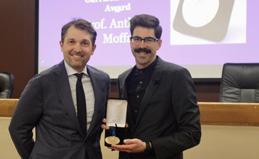
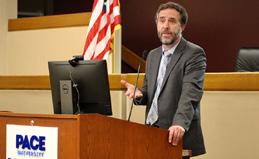
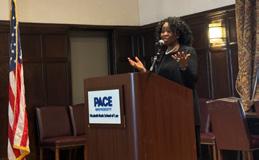
Professor Anthony Moffa delivered the 2025 Lloyd K. Garrison Lecture on Environmental Law on “Back to the Future for Climate Liability.” The Lloyd K. Garrison Lecture on Environmental Law was established in memory of Lloyd K. Garrison in 1995. Professor Anthony Moffa was named a Haub Visiting Scholar at the Elisabeth Haub School of Law at Pace University. He is also a Professor and Associate Dean for Innovation at University of Maine School of Law, where he oversees the Environmental and Oceans Law Certificate Program.
Professor Justin Pidot delivered the 2024 Gilbert and Sarah Kerlin Lecture on Environmental Law at the Elisabeth Haub School of Law at Pace University, speaking on “Environmental Justice at the White House.” Professor Pidot is the Ashby Lohse Chair in Water & Natural Resources and Co-director of the Environmental Law Program at the University of Arizona James E. Rogers College of Law.
Professor Ruth L. Okediji delivered the 2025 Blaine Sloan Lecture on International Law speaking on “Progress and Progressive Intellectual Property Treaties: New Issues, New Actors.” Professor Okediji is the Jeremiah Smith Jr. Professor of Law at Harvard Law School and Co-Director of Harvard University’s Berkman Klein Center for Internet & Society.
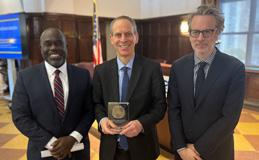
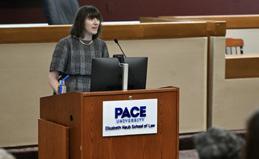
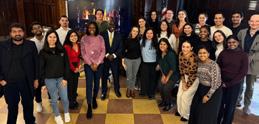
Professor Michael C. Dorf delivered the 2025 Dyson Distinguished Lecture, speaking on “Play in the Joints of the Religion Clauses and Law More Broadly.” Professor Dorf is the Robert S. Stevens Professor of Law at Cornell Law School.
Professor Margot Pollans delivered the 2025 James D. Hopkins Memorial Lecture on “Inundations: Pain, Bodies, and the Law.” Dean Horace Anderson appointed Professor Pollans as the James D. Hopkins Professor of Law for the 2023–2025 term. Professor Margot Pollans joined the Law School’s faculty in 2015. She is the Faculty Director of the Pace Food Law Center and is currently the Joseph P. D’Alessandro Faculty Scholar.
The Elisabeth Haub School of Law at Pace University hosted its annual LLM Thanksgiving lunch, bringing together students in its graduate programs from 20 countries to experience this American tradition—many for the first time. More than a meal, it was a celebration of community and a cultural exchange, providing an opportunity to learn about similar family feasts celebrated across the world.
The Elisabeth Haub School of Law at Pace University honored three distinguished leaders of the legal community, as well as outstanding alumni, during its 30th Annual Law Leadership Dinner, held at the Westchester Country Club on March 28, 2025. More than 200 alumni, faculty, students, elected officials, members of the judiciary, and distinguished lawyers attended the celebration, raising vital funds in support of student scholarships, faculty research, and innovative programs.
This year, the Law School was proud to recognize three outstanding legal professionals as Law Leadership Award honorees: Paul C. Saunders, Retired Partner, Cravath, Swaine & Moore LLP; Susan E. Galvão ’93, Co-Managing Partner at Bleakley Platt and Schmidt, LLP; and Vernon J. Brown ’96, founder of V. Brown & Company. The Dinner was emceed by Amy Divino ’91, co-chair of the Prosecution Practice at Cozen O’Connor.
An additional highlight of the Law Leadership dinner was Dean Horace Anderson’s presentation of the 2025 Shining Star Awards to: Lauren C. Enea ’16, a partner at Enea, Scanlan & Sirignano, LLP; Monica Lindsay ’19, an associate at Cleary Gottlieb Steen & Hamilton LLP; and Nicolette Pellegrino ’18, Assistant Director of Legal Recruitment at the New York City Law Department.
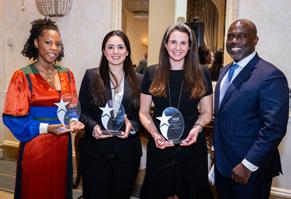
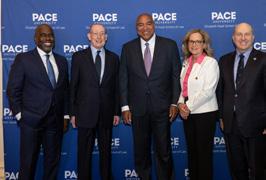
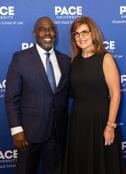
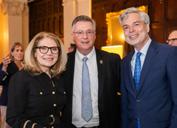
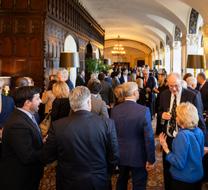
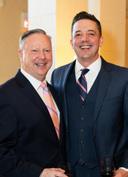

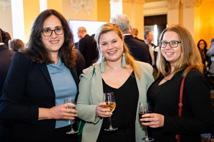
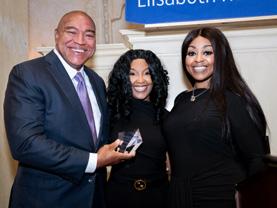
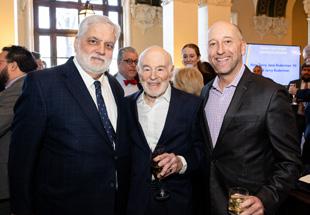

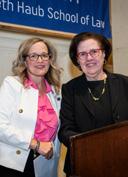
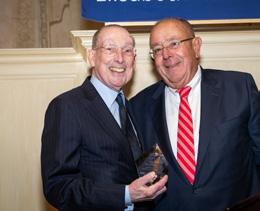
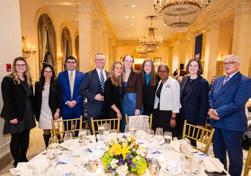
On May 20, 2025, New York City Fire Department (FDNY) Commissioner Robert S. Tucker, a distinguished public servant and a proud alumnus from the Class of 1996, delivered Elisabeth Haub School of Law at Pace University’s 47th commencement ceremony address to graduates at the USTA Billie Jean King National Tennis Center in Queens, New York. Mr. Tucker also received the Doctor of Laws, honoris causa, the highest honor conferred by the Law School, recognizing his lifelong contributions to public service, public safety and the legal profession.

Horace E. Anderson Jr., Dean of the Elisabeth Haub School of Law at Pace University, presided over the commencement ceremony and gave remarks. Delivering the opening address was Pace University President Marvin Krislov. The Class of 2025 student address was delivered by Gigi Quatrone.
LLM graduates were hooded by Associate Dean and Professor of Law Jason Czarnezki, and JD graduates were hooded by Professor Leslie Garfield Tenzer and Adjunct Professor Robin Frankel, the recipients of this year’s Barbara C. Salken Outstanding Professor of the Year Award, as selected by the Class of 2025. The Dean’s Award, the Law School’s highest honor for academic excellence, service, and leadership, was presented to three outstanding graduates: Jonathan Bluvstein, JD, Kira Segal, Part-time Flex JD, and Samuel Fonseca de Carvalho, LLM.
WATCH THE 2025 COMMENCEMENT CEREMONY pace.edu/law/academics/registrar/commencement
263
Juris Doctor degrees (including 44 students who completed Advanced Certificates, 4 graduates who earned a joint degree with Yale School for the Environment, and 1 graduate who earned a joint degree with Bard College, Center for Environmental Policy. Of special note were 25 Part-time Flex JD graduates, who completed their degrees while balancing the demands of school, work, and life)


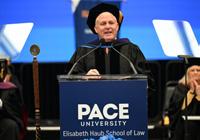
9 Master of Laws degrees in Comparative Legal Studies
11 Master of Laws degrees in Environmental Law
1 Doctor of Juridical Science degree
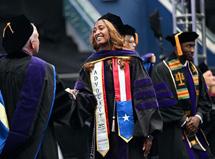

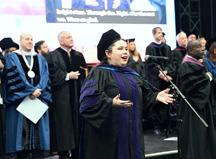
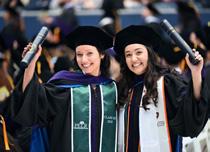




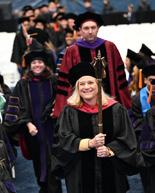
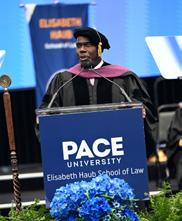
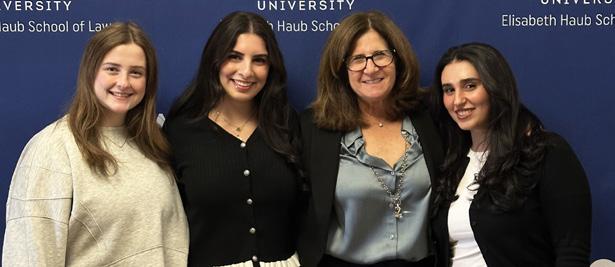
By: Professor Leslie Y. Garfield Tenzer
In the aftermath of the October 7, 2023 Hamas-led attack on Israel, students on campuses across the country reported experiencing a profound sense of isolation and anxiety. Muslim and Arab students voiced experiences of being unfairly stereotyped or feeling pressure to explain or defend their positions. Jewish students similarly described feelings of vulnerability and fearfulness when expressing their identities or concerns about antisemitism. Students from both communities described walking on eggshells during class discussions or withdrawing from campus activities altogether. Even students not directly connected to the conflict described campus atmospheres across as tense and divided.
While most of the national attention was placed on elite undergraduate institutions, some law schools also experienced headline-grabbing protests. Fortunately, the atmosphere at the Elisabeth Haub School of Law at Pace University was tame. Nevertheless, some law students expressed that the issue created a subtle undercurrent of unease on campus.
(CLSA), and Evelina Safanova, Jewish Law Students Association (JLSA).
These remarkable young women worked with me to design a program that reinforced the Law School’s shared values of understanding and tolerance, which would benefit students. My goal was alleviating some of the subtle tensions and discomfort a handful of students had privately expressed.
On February 24, 2025, members of the Christian, Jewish, and Muslim Law Students Associations at Pace Haub Law gathered for an Interfaith Luncheon. The event, funded by the Academic Engagement Network, showcased our students’ commitment to diversity and inclusivity.

Immediately following the events of October 7, students from both communities, and students without direct affiliation to the conflict, joined together on the campus quad for prayers led by Imam Shaffiq Chase and Rabbi David Marcus. Students organized a similar vigil the following year.
The gathering opened with invocations from Father Tom Byrne, Imam Shaffieq Chase, and Rabbi David Marcus, who offered wisdom encouraging interfaith cooperation.
The student organization presidents delivered remarks promoting religious tolerance on campus. More than 40 students participated in the event, which centered on a kosher and halal meal of sushi and Middle Eastern food.
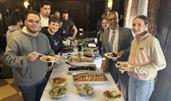
The gatherings were meaningful to participants, but students desired an additional platform to get to know each other as individuals or learn about their differing viewpoints. While the Law School did not experience any on-campus organized conflicts or protests, some Jewish and Muslim students continued feeling uneasiness. Faculty and administration members recognized underlying tension despite the outward appearance of calm.
In November 2024, I began collaborating with the presidents of our three religious affiliated student groups: Tia Hodroj, Muslim Law Students Association (MLSA), Emily Nobles, Christian Law Students Association
I watched with awe and pride as the students engaged in meaningful conversations transcending religious boundaries, reinforcing the importance of inclusivity in the legal profession and demonstrating how law students can embrace diversity as a cornerstone of justice. I saw students I knew had misconceptions of each other because of their backgrounds stop and take the time to learn about one another. I saw students with families from both sides of the conflict, “hug it out.”
This wasn’t the first time these students worked together and this latest gathering being more than symbolic, it will not be the last. During the fall 2024 semester, under the guidance of Angie D’Agostino, student leaders from CLSA, JLSA, and MLSA, coordinated with each other to create a prayer room that would meet the needs of all religious groups. This recent gathering was, however, the first interfaith interactive program for student members of the three religious affiliated groups. The luncheon created a unique opportunity for students of different faiths to connect in unity and mutual respect. Seeing students, faculty, staff, and religious leaders find common ground in a stigma-free setting highlights what makes Pace Haub Law unique. n
Professor Margot Pollans joined the Elisabeth Haub School of Law at Pace University faculty in 2015. She is the Faculty Director of the Pace Food Law Center, the Joseph P. D’Alessandro Faculty Scholar, and also served as the James D. Hopkins Professor of Law for the 2023–2025 academic years. Previously, she served as the Shamik and Adrienne Trivedi Faculty Scholar from 2020–2022. During her time at the Law School, she has been a leader in building the national reputation of the Pace Food Law Center. Professor Pollans is an accomplished scholar whose primary research interests lie in the areas of food and agriculture law, environmental law, administrative law, and social justice and her academic work has appeared in a variety of prestigious journals.
Can you tell us a bit about your background leading up to law school?
I have been interested in agriculture and environmental issues since I was in high school. I did a summer program after 9th grade in downtown Boston where I had an internship with a community gardening organization. Looking back, it was such a logical start for me, but I remember being disappointed at the time because I wanted a different placement. I returned to the issue as an undergrad. I studied environmental history, with a focus on agriculture. I was interested in the interplay of cities and rural areas. In college, I had the opportunity to spend a semester at Biosphere 2 outside of Tucson, Arizona. At the time, Columbia University ran an earth systems science semester field course there. After college, I became a high school teacher. The plan was to do it for one year while I applied to grad school, but I stayed for three because I loved teaching. I was also the cross-country coach. That was a fun gig.
Did you always intend to or want to work in academia?
Not at all. In fact, as an undergrad, I decided not to apply for history PhD programs, because I didn’t want to be a researcher. I went to law school planning to pursue a joint degree in public policy and to go into urban environmental policy. But I loved law school, and I was drawn into the kinds of research and analysis that legal academia makes possible. I also looked around at the law professors that I knew and saw a lot of people doing really cool stuff—launching research centers and clinics, lobbying congress, pivoting into public sector jobs, engaging in pro bono representation. It felt like a path that would let me carve out my own space.
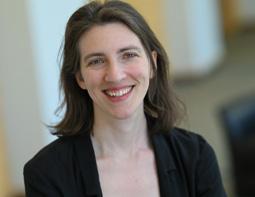
Your research interests and areas of expertise include Administrative Law, Food and Agriculture Law, Environmental Law, Social Justice, and more – what is it about those areas that hold your interest?
When I first started out, I was interested in questions related to how to make the world a better place—where did the law fall short and how might it be reformed? These were policy questions. My research has evolved in recent years to focus more on using the law as a lens to understand structures of power. For instance, how does food regulation reflect social hierarchy and how does it reinforce social hierarchy? Food is a life-long obsession for me, but as an academic pursuit it is just one possible access point to understanding power.
You are Faculty Director of the Pace Food Law Center – can you talk a bit about the importance of the work of the Center?
The Center is the home for Pace’s Food and Farm Business Law Clinic. The Clinic, run by Professor Jon Brown, provides transactional legal services to farms and food businesses in New York. The kinds of businesses the Clinic works with are essential for rural economic development and food system resiliency, but they often struggle to access the legal services they need to remain viable. The Clinic plays a really important role here. A little-known fact about Pace Haub Law is that we have one of the largest food law faculties in the country. We use the Center to build our research capacity, to support students interested in careers in this area, and to engage with other law schools working on food law advocacy. For instance, we are part of the Farm Bill Law
Continued on page 37.
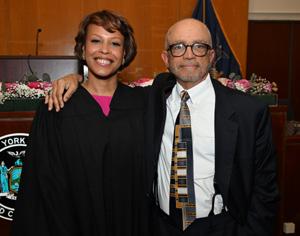
Judge Malaika N. Scott-McLaughlin ’09, a Civil Court Judge for the City of New York, was no stranger to the legal world growing up. As the daughter of Professor Randolph McLaughlin, a renowned civil rights attorney and longtime member of the faculty at the Elisabeth Haub School of Law at Pace University, she spent a lot of time observing him in the classroom teaching and in practice advocating. “By the time I started law school, I was very familiar with the concept and what to expect,” said Judge Scott-McLaughlin. When she enrolled at Pace Haub Law, she began as a part-time student, taking on additional summer courses to transition into a full-time second year student.
She describes her time at the Law School as a “normal law school experience,” full of the challenges and growth typical of law school. Following her graduation in 2009, Judge Scott-McLaughlin served for ten years as a court attorney for the New York State Unified Court System. “Working as a court attorney was a great training ground for learning about litigation,” she shared. “I worked with some wonderful jurists as a new court attorney and I gained insight into what being a judge entails, how to manage a court calendar, how to manage cases, and how to deal with litigants who come before the court.”
Today, as a judge, she brings that insight into the courtroom. “Litigation is a long process, with many steps, and it is very multifaceted. It can be difficult to manage for a litigant appearing without counsel. I try my best to explain the process to litigants and help manage their expectations about the various paths the case could take.”
For Professor McLaughlin, his path to law school began in middle school. He recalls learning about the work that civil rights lawyers had engaged in, fighting segregation and representing activists and he was inspired. “My passion for justice drives my passion for civil rights,” shares Professor McLaughlin. “I hate bullies and those who abuse power. My career has been devoted to standing with the marginalized and representing victims of discrimination and hatred.”
Professor McLaughlin’s passion led him not only into civil rights litigation –including a historic case against the Ku Klux Klan recently featured in an award-winning documentary – but also into academia, where he continues to inspire future generations of law students. “Teaching affords me the opportunity to make contributions to the law, through litigation and scholarship, and to the next generation of lawyers, who are hopefully inspired to engage in this important work in their own communities.”
Professor McLaughlin never pushed his daughter towards law school and was surprised, yet pleased, when she decided to pursue a career in law. “Since Malaika went on to the bench, I have had many discussions with her concerning how she handles cases and makes decisions,” shared Professor McLaughlin. “Having always been a litigator and never a judge, these conversations gave me insights into how judges struggle to make the right decisions in their cases. It has also helped me to see the
judiciary not just as decision-makers, but as lawyers trying to reach a fair and just result.”
For her part, Judge Scott-McLaughlin describes her father as her greatest sounding board. “My father has practiced law for almost 40 years and has a tremendous amount of experience,” she shared. “One of the many lessons I have learned from him is to always keep on your tap dancing shoes because you never know when you will have to pull out the old attorney razzle-dazzle. Also, put out good work and treat people with respect and dignity.”
Just as Professor McLaughlin has gained insight into a judge’s perspective, Judge Scott-McLaughlin describes the compassion she has come to feel for litigants and litigators as well. “One of the lessons I have learned from watching my father litigate civil rights cases is that litigants go through a lot before they come through the doors of the courthouse and decide to file a claim—whether they are pro se or have counsel. It can take courage and bravery for the litigant. It is not easy to be a litigator either. There is tremendous work the attorney must do before the case is ready for trial. So, when litigants appear in front of me, I keep that in mind and try to handle each case with thoughtfulness, compassion and respect.”
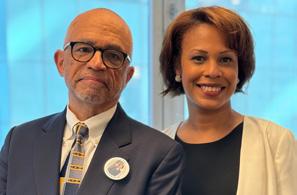
Rounding out the family’s legacy at the Law School is Professor McLaughlin’s wife, Debra Cohen, a distinguished alumna of Pace Haub Law and a long-serving adjunct professor. Professors McLaughlin and Cohen also co-chair the Civil Rights Practice Group of Newman Ferrara LLP in Manhattan. Beyond their professional commitments, the family enjoys spending time together with their larger extended families.
Professor McLaughlin is honored by the legacy he sees continuing through his daughter. “Public service is something I was always committed to, and it is humbling to see that same passion for the greater good in my daughter. We share the desire to help others, and I couldn’t be prouder.”
A Q&A WITH PROFESSOR MARGOT POLLANS Continued from page 35.
Enterprise, a consortium of law schools, headed by the Harvard Food Law and Policy Clinic, that conducts research and advocacy on the farm bill.
You teach several classes at Pace Haub Law – do you have a favorite to teach and if so, why?
Right now, my favorite class to teach is Property. It is a really fascinating subject. Property law lies at the heart of our economic system. I try to teach students to unpack the normative assumptions embedded in property doctrine. Much of property law rests on the assumptions that property should be put to productive use and that private ownership merits robust protection. Why? It’s fun to invite students to question assumptions they have lived with their entire lives.
What are some of your current research interests and projects?
Right now, I am working on several interrelated projects examining patterns in regulation across a variety of different areas—food, toxic exposure, gun violence. We are currently in a moment of regulatory decline, at least at the federal level. The regulatory state is being decimated. I am trying to deepen my understanding of why it is so unpopular.
“We are a Star Wars and Marvel family – with a little Wicked mixed in,” shared Judge Scott-McLaughlin. “We really enjoy watching these films and others together.” Summers are often spent vacationing in Montauk, where the family gathers for memorable evenings and large dinners. With so many legal minds around the table, conversation is never dull. “Our family dinners are full of spirited discussion—whether it’s dissecting the latest blockbuster or debating a hot legal issue, absolutely nothing is off the table!” n
What general advice do you have for law students?
Read a lot. Use AI, but only as a thinking partner. When in doubt, make your sentences shorter. Spend some time reflecting not just on what subject of law you want to practice but also on how you want to spend your time. Do you want to be in court? Do you want to be reading and writing? Do you want to be out talking to people and organizing? Do you thrive if your day is full of meetings? Or do you thrive if you’re left alone all day to get your work done?
How do you spend your spare time?
I used to spend an enormous amount of time baking. I got into wedding cakes for a while, and, very briefly, had a cooking blog. These days my small kids take up every second of free time, but they are getting old enough to participate. They bake with me, and I am trying to get them into gardening with me. That’s a new hobby. We’ll see if it takes (for me or for them). n
BY PROFESSOR JESSICA MILES
The following excerpt is from Professor Jessica Miles’s 2024 article, Disgusted Judges and Domestic Violence, which was published in the Seton Hall Law Review.
Introduction
Amber Heard Gives Further Detail of ‘Disgusting’ Abuse by Johnny Depp, proclaimed one news outlet in the headline for its article describing Amber Heard’s trial testimony about domestic violence in her relationship with Johnny Depp. Media coverage of the Depp versus Heard trial repeatedly used the language of disgust in discussing the defamation case in which Mr. Depp sued Ms. Heard based on her allegation that he had abused her during their marriage. The public discussion of the Depp-Heard dispute, with its frequent use of words evocative of disgust, vividly illustrated the reality that human beings across cultures often feel disgust in response to domestic violence. One might anticipate that feelings of disgust with domestic violence would be directed exclusively towards abusive individuals and thus consistently serve to support legal efforts to address the problem of domestic violence. Drawing upon social science research and courtbased studies, however, this Article argues that judicial disgust with evidence of domestic violence, whether conscious or subconscious, tends to undercut safety for abuse survivors by subverting the effective application of Civil Protection Order (CPO) laws intended to protect them.
Domestic violence, or intimate partner violence (IPV), exacts enormous physical, emotional, and financial tolls on individuals, families, and society. Each year in the United States, IPV results in numerous lives lost (1 in 2 female murder victims are killed by intimate partners) as well as extensive health care costs ($5.8 billion) and dramatic reductions in paid work days (8 million). Survivors of IPV, when looking to the legal system for help, typically seek civil protection orders (CPOs) in lieu of criminal prosecutions of their former partners. When issued by a judge, a CPO typically prohibits a person from abusing, contacting, or going near a former intimate partner for a specified period of time (e.g., one year). CPOs are effective in reducing the risk of subsequent IPV for survivors and their children. In addition, CPOs serve the public interest and save taxpayers an estimated $85 million per year through decreases in IPVrelated calls to 911, arrests, and other expenditures.
All fifty states have CPO statutes that enable IPV survivors to petition for protection from an abusive current or former intimate partner, generally through a two-step process. In most states, survivors file a petition seeking an ex parte temporary CPO then, following notice to the defendant, proceed to an evidentiary hearing or trial at which a judge decides whether to enter a “final” or long-term CPO. IPV survivors, however, frequently struggle to obtain final CPOs and state statistics

indicate that the majority of CPO case filings result in dismissals, which suggests that the legal system is failing to meet the key CPO statutory goal of enhancing safety.
Of course, dismissal of a petition for protection from IPV does not raise concerns with the improper influence of judicial disgust, or other nonlegal factors, in every instance. Courts terminate many cases prior to trial on the issuance of a final CPO for procedural reasons (e.g., lack of service of process). In addition, as with any legal complaint, some petitions for protection lack merit. But social science research, legal scholarship, and anecdotal evidence all signify that when a CPO matter proceeds to trial, the identity of the assigned judge strongly predicts the ultimate outcome. The reality that the assignment of a particular judge correlates with CPO case disposition offers proof that nonlegal factors heavily influence adjudication in these matters. This Article asserts that, among the nonlegal factors impacting judicial decisions in CPO cases, the emotion of disgust often plays a critical role in ways that obstruct access to protection that IPV survivors should have in accordance with the law.
Other extralegal considerations that may shape CPO case decisions include, but are not limited to, a judge’s background (e.g., socioeconomic status and any personal experience with IPV) as well as institutional concerns (e.g., a judge’s workload and court system promotion structure). Scholars have previously examined the pervasive impact of gender bias and the related phenomenon of credibility discounting on IPV cases. Yet, despite widespread acknowledgement that emotions affect judges’ decisions, and that family court matters are often intensely emotional, legal scholarship has, to date, not explored the part that emotions may play in legal decision-making in IPV cases. This Article begins to address that profound gap, centering on the emotion of disgust in CPO cases.
“ DOMESTIC VIOLENCE, OR INTIMATE PARTNER VIOLENCE (IPV), EXACTS ENORMOUS PHYSICAL, EMOTIONAL, AND FINANCIAL TOLLS ON INDIVIDUALS, FAMILIES, AND SOCIETY.”
Research indicates that human beings are often disgusted when presented with evidence of IPV, whether subconsciously or, perhaps less often, consciously. Based on this research, this Article posits a model of the operation of judicial disgust in CPO cases, most often to the detriment of IPV survivors and in contravention of legislative intent to provide survivors with protection through CPO statutes. It then proposes solutions to reduce the negative effects of judicial disgust.
PROFESSOR
JESSICA
MILES
In some CPO matters, namely “clear cut” cases (e.g., “well documented serious violence”), judicial disgust likely focuses on the person found to have abused their intimate partner, motivating a judge to enter a CPO in favor of a survivor in accordance with law, albeit potentially at the expense of procedural justice. But judicial disgust in seemingly “clear cut” cases may lead to error by stimulating tendencies to “rush to judgement.” Most CPO cases, moreover, are not “clear cut.”
The majority of CPO cases present in court as “ambiguous.” Some “ambiguous” cases lack merit and do not warrant entry of a CPO. Other “ambiguous” cases, however, involve IPV legally sufficient to support the entry of a CPO. In “ambiguous” cases, judicial disgust may often encompass survivors, as well as their abusive partners, and thereby thwart judicial fact-finding and legal analysis in ways that impede survivors’ access to CPOs.
Disgust experienced by a judge in hearing a CPO case may influence that judge through avoidance responses or distorted blame assessments or both. A judge may feel disgust related to IPV in any CPO case, regardless of presentation (i.e., “clear cut” or “ambiguous”), although the emotion is most likely to drive outcomes in “ambiguous” cases and do so in ways that impair protection for survivors. First, disgust may inspire judicial avoidance, whether in an active form (i.e., “rush to judgment” often through use of “mental shortcuts”), a passive form (i.e., failure to engage in adequate fact-finding and/or legal analysis, particularly with self-represented litigants), or both forms.
Second, disgust may lead judges to assess blame for IPV in distorted ways, including by victim blaming or by finding the parties share “mutual blame” for a “toxic relationship” even where only one partner has perpetrated abuse. Victim blaming by judges in CPO cases involves asking questions, or making comments during hearings, that seem to attribute fault to survivors for “allowing themselves” to be subjected to acts of physical and sexual abuse by their intimate partners. For example, in one recent CPO hearing, involving an allegation of sexual assault by an intimate partner, the judge asked the plaintiff, “Do you know how to stop somebody from having intercourse with you? . . . Block your body parts? Close your legs? Call the police? Did you do any of those things?” Understanding the varied ways in which judicial disgust may be directed (i.e., towards a perpetrator, survivor, or both partners) and the different mechanisms by which it may operate (i.e., through distorted blame or avoidance or both) in CPO matters can elucidate why judicial disgust undermines survivor safety and access to legal relief as well as procedural justice.
In essence, this Article argues that judicial disgust with IPV often plays out in CPO cases in ways that undermine statutory protections intended to aid survivors and simultaneously erode respect for procedural justice. It then offers recommendations for avoiding and mitigating the varied problems that judicial disgust may cause in IPV cases. Part I provides an overview of the role of emotions in decision making and highlights the influence of moral disgust. It also examines common features of disgust to inform later analysis of how disgust may be implicated in adjudication of CPO cases. Part II explores why disgust likely represents the most common emotion in the context of IPV as well as how human beings may experience disgust with (1) acts of IPV, (2) people who abuse their intimate partners, and (3) those who suffer and survive abuse. Since disgust with IPV survivors may seem counterintuitive, research on this topic receives special attention.
Part III initially considers the reasons that emotions are especially likely to sway outcomes in CPO cases. It then explores how judicial disgust will likely operate differently depending on whether a CPO case presents as “clear cut” or “ambiguous.” Part III proceeds to examine how judicial disgust in IPV matters may promote both distorted blame assessments and avoidance behaviors, which, in turn, subvert justice in legal decisionmaking. Finally, Part IV considers substantive and procedural legal reforms, as well as changes to all areas of legal education, to address the problematic effects of judicial disgust in IPV cases. State law modifications should include mandating written or oral opinions “on the record” in CPO cases, along with CPO data collection and publication, to facilitate greater transparency and judicial accountability. Meanwhile, law schools and other legal education providers should seek to ensure legal professionals receive training in skills that enhance emotional regulation (e.g., cognitive reappraisal) and thereby equip them to ameliorate the potential harmful effects of disgust, and other emotions, on their decision-making whether in legal practice or on the bench. These and other reforms could serve to counteract the improper influence of judicial disgust in CPO cases and thus increase safety for IPV survivors. n
Professor Jessica Miles joined the Elisabeth Haub School of Law at Pace University faculty as an Associate Professor of Law in 2023. She teaches several courses, including Domestic Violence Law, Evidence, Family Law, Torts, and Trial Advocacy. Professor Miles’s research and scholarship focuses on legal issues related to domestic violence.
For purposes of this excerpt, footnotes have been admitted. The full version of this article was published in the Seton Hall Law Review: 55 Seton Hall L. Rev. 353 (2024).

In their new book , Elisabeth Haub School of Law at Pace University Law Professors Emily Gold Waldman and Bridget J. Crawford (co-authored with Naomi R. Cahn), explore cultural, legal, and medical attitudes toward menopause and highlight how societal taboos around reproductive health contribute to ongoing inequities. The authors suggest concrete changes to existing legislation and workplace policies to better support those going through menopause and advocate for an intersectional, equityfocused approach. The book has received positive acclaim as “revelatory, a “definitive guide to legal and cultural perspectives on menopause,” “groundbreaking,” “a must-read,” “fascinating,” and more. We sat down with Professors Waldman and Crawford to discuss their latest publication.

What inspired you to write Hot Flash, and how did your collaboration come about?
Both law and society have traditionally ignored menopause. Part of our intention in writing this book was to break the silence and stigma associated with this inevitable biological process that approximately half the world will experience. It was a natural segue from our first book, which was about menstruation—another biological process that is experienced by half the world, but is shrouded in silence and stigma. It’s fascinating to look at these topics through a legal lens. What would different aspects of life look like if we fully took into account the realities of half of the population? This is a question for schools, workplaces, the marketplace, and society at large. Together with our co-author, Naomi Cahn of UVA Law School, we brought to the subject our different expertises – anti-discrimination law, employment law, aging in the law, family law, tax law, corporate law, and feminist legal theory. Menstruation and menopause are implicated in all of these different areas of the law. We also think it’s important to take a broad view, and consider menstruation and menopause alongside other reproductive stages and processes like pregnancy and breastfeeding.
Do you feel that there is less of a stigma today than in more recent years with speaking about menopause and what have traditionally been considered “women’s issues”?
Yes, we finally seem be reaching a moment in law and culture where there is a willingness to talk about menopause. For the very first time, celebrities, political figures, and others are speaking more openly about their own menopausal symptoms—which raises awareness for others. Menopause is entering conversations about how to make the workplace and other environments more accommodating for everyone.
Historically, how has US law addressed menopause?
Generally speaking, the American legal system has been pretty silent about menopause. We have big federal statutes that deal with sex discrimination, age discrimination, and disability discrimination. Menopause sits at the intersection on these issues, but tends to fall through the cracks. In the legal and social treatment of menopause, we see a perfect storm of gender, disability, and aging concerns. In this book, we try to think through how the law could evolve to take account of menopause while also acknowledging that people have very different experiences of menopause.
How do you think the law could start to properly address menopause? First, menopause needs to be understood as an issue that is relevant to law. Second, we would love to see employers voluntarily adopting practices that can allow all employees the flexibility they need to manage their experience or symptoms of menopause. Finally, the law needs to recognize that although menopause is not a disability itself—it is just a bodily change—menopause can have debilitating symptoms for some people for certain periods of time. Employees, families, businesses, and the economy itself all suffer when workplaces are not responsive to human needs.
Who would benefit from reading this book?
Whether you are a lawyer or law professor, a student, a healthcare professional, or just someone interested in becoming more informed, this book has something for you. We talk about how menopause is depicted in the media and popular culture. We also explore menopause in the context of health care settings, medical education, and scientific research. We look especially at businesses in the UK to explore how employers there have already started taking action to be more responsive to menopause. This book is for anyone who is interested in moving toward a more just and equitable future. Law and society can do a better job accommodating all people and all bodies.
What are some other areas of the law related to menstruation and menopause that you feel are overlooked and could benefit from advances or protection in the law?
We’ve made some progress in the area of menstruation—for example, several jurisdictions now require schools to provide free menstrual products—but compliance is uneven, and enforcement is weak. Incarcerated people, too, continue to face barriers to accessing adequate menstrual and menopausal care, with few legal standards ensuring dignity or consistency in product availability. We need to start treating menstrual products like toilet paper: a basic necessity that is freely available in any public restroom. What’s harder to address are the persistent taboos, especially around menopause. Only recently have celebrities like Oprah Winfrey and Halle Berry spoken publicly about their experiences, but they are the exceptions. Menopause, while individually experienced, is a stage of life that should be treated in the workplace and in society with the same support as pregnancy and breastfeeding receive. The law must recognize menopause as part of the ordinary arc of a worker’s life—one that may require temporary accommodations. Those accommodations benefit everyone: workers can remain on the job, employers retain experienced leaders, and organizations avoid costly turnover.
How have cultural stereotypes and media representations contributed to the stigma surrounding menopause?
Cultural stereotypes and media representations have long contributed to the stigma surrounding menopause, often framing it as the end of usefulness or vitality, or using it as fodder for jokes. Recently, we’ve seen some openness, especially in the booming marketplace for menopause-related products—from apps that track symptoms to cooling pajamas and vitamin supplements
of questionable scientific value. On one hand, it’s encouraging that there are more tools available for education and symptom relief. On the other hand, consumers must be wary of the ways menopause is being commodified, with companies—from solo entrepreneurs to global conglomerates—capitalizing on anxieties about aging and often overblown promise of bodily control through technology. Sometimes, though, all a person really needs is an inexpensive desk fan!
How do you envision the role of law schools and legal education in advancing awareness and advocacy on this issue?
Law school affords students the opportunity to consider many topics that they have not considered before and to expand the conventional understanding of what law is and what it can achieve. Law students at Pace Haub Law and nation-wide have been active in menstruationrelated advocacy, especially efforts to make menstrual products more affordable and available. Menopause awareness and law reform are logical next steps in that work. At the curricular level, legal education doesn’t just teach what the law is—it trains students to imagine what the law could be. By incorporating menstruation and menopause into discussions about various aspects of employment law, education law, health law, business law, tax law, and more, students can start to see how the law’s silence is not inevitable. The law is a powerful tool in creating a more equitable future.
Do you have any future books on the horizon surrounding menopause, menstruation, or related issues?
We never imagined we would be doing this work in the first place! Like many others, we didn’t initially grasp the deep and varied ways that law intersects with menstruation and menopause—but once we began to connect the dots, the legal relevance was impossible to ignore. Our work also caught the wave of a cultural zeitgeist surrounding menstruation and menopause, which has been so exciting to see. We’re continuing our work in these areas. In the coming months, we will be contributing chapters to four different edited books, each intended for a global audience but having a distinct lens—from health care transformation to workplace equity to anthropological insights into human reproduction. What’s become clear is that menstruation and menopause are not niche or specialized topics—they are entry points into some of the most urgent conversations in law, policy, and justice. These issues touch everyone’s lives, and have a clear role in scholarly and public conversations. n
“ WHAT’S BECOME CLEAR IS THAT MENSTRUATION AND MENOPAUSE ARE NOT NICHE OR SPECIALIZED TOPICS—THEY ARE ENTRY POINTS INTO SOME OF THE MOST URGENT CONVERSATIONS IN LAW, POLICY, AND JUSTICE.”
PROFESSORS EMILY GOLD WALDMAN AND BRIDGET J. CRAWFORD
ASSISTANT PROFESSOR OF LAW
Immigration Law scholar and practitioner, Amelia Wilson, joined the Elisabeth Haub School of Law at Pace University faculty as an Assistant Professor of Law and Director of the Immigration Justice Clinic (IJC). In her role as Director of the IJC, Professor Wilson also assumed clinical teaching responsibilities. Previously, Professor Wilson was an Assistant Clinical Professor in the Immigrants’ Rights/ International Human Rights Clinic at Seton Hall School of Law. Prior to that, Professor Wilson served for four years as Supervising Attorney, Research Scholar and Lecturer-in-Law at Columbia Law School where she co-taught the Immigrants’ Rights Clinic.
Lauren Roth
ASSOCIATE PROFESSOR OF LAW

Law. For nearly a decade and a half before entering academia full-time, Professor Skolnick was a post-conviction public defender at the Center for Appellate Litigation (“CAL”), where she also taught in the Appellate Criminal Defense Clinic at Cornell Law School.
ASSISTANT PROFESSOR OF LAW


Accomplished scholar in health law and business law, Lauren Roth, will join the Elisabeth Haub School of Law at Pace University faculty as an Associate Professor of Law beginning in Fall 2025. Professor Roth will teach courses in corporations, contracts, and health law while also contributing her expertise and leadership to the Law School’s Health Law and Policy Certificate program. Prior to this, Professor Roth was an Assistant Professor of Law at Touro Law Center. Her teaching and research interests include health law, business law, fiduciary law, and employee benefits. She is a frequently published author, and her research reflects an interdisciplinary approach and utilizes a range of methodological tools, including quantitative methods.
ASSISTANT PROFESSOR OF LAW
Skilled public defender and respected criminal law scholar, Kate Skolnick, will join the Elisabeth Haub School of Law at Pace University faculty as an Assistant Professor of Law beginning in Fall 2025. Professor Skolnick will teach courses in criminal law and criminal procedure, along with an advanced criminal law seminar. Prior to joining Pace Haub Law, Professor Skolnick served as an Acting Assistant Professor in the Lawyering Program at New York University School of

Criminal law and philosophy scholar, Gregory Antill, will join the Elisabeth Haub School of Law at Pace University faculty as an Assistant Professor of Law beginning in Fall 2025. Professor Antill will teach courses in criminal law and tort law while also supervising student scholarship and research projects in the advanced legal writing seminar. Prior to this, Professor Antill was an Academic Fellow and Lecturer in Law at Columbia Law School. He has also held previous academic appointments at Yale University, Pomona College, and Claremont McKenna College. His primary teaching and research interests include criminal law, tort law, and evidence, where he applies recent advances in philosophy and cognitive science to traditional legal questions about mens rea, culpability, causation, and expert testimony.
Imre Szalai
PROFESSOR OF LAW
Nationally-known arbitration scholar, Imre Szalai, will join the Elisabeth Haub School of Law at Pace University faculty as a full Professor of Law with tenure beginning in Fall 2025. Professor Szalai will teach courses on contracts, commercial arbitration, civil procedure, and legal ethics. Most recently, Professor Szalai was the Jones Walker Distinguished Professor at Loyola University New Orleans College of Law. Professor Szalai has served as a commercial arbitrator in numerous cases, and he has written books, book chapters, and dozens of articles about arbitration. He is particularly interested in the historical development of arbitration practices and arbitration law. Working together with his students, he has written several amicus briefs regarding arbitration matters, and his work has been cited by courts of all levels and during Congressional hearings.


The Federal Arbitration Act: Successes, Failures, and a Roadmap for Reform by Jill I. Gross (co-edited with Richard A. Bales)

Social Movements and the Law: Talking About Black Lives Matter and #MeToo by Bridget J. Crawford (co-edited with Lolita Buckner Inniss)

Hot Flash: How the Law Ignores Menopause and What We Can Do About It by Emily Gold Waldman and Bridget J. Crawford (co-authored with Naomi R. Cahn)



Professor Gabriel Pell served as a Visiting Assistant Professor of Law. Professor Pell is a former prosecutor who previously taught for several years at New York Law School. Professor Pell’s research and writing interests focus on criminal law and criminal procedure.
Professor Fernando Mendoza Lopez served as a Visiting Assistant Professor of Law. Professor Mendoza Lopez recently received his JD and PhD from Vanderbilt Law School, and previously served as Director of Economic Studies in the Mexican federal government.
Professor Keith Engel, a seasoned expert in tax policy, served as a Visiting Professor of Law. Professor Engel is currently Chief Executive Officer for the South African Institute of Taxation and an adjunct tax professor at the University of Witswatersrand.

Adapting to HighLevel Warming: Law, Governance, and Equity by Professor Katrina Fischer Kuh (co-edited with Shannon Roesler)

A Tale of Two Cities: A Comparison of Air Pollution Governance in the Los Angeles Area of the USA and the Beijing-TianjinHebei Area of China by Richard L. Ottinger (co-author with Wang Xi)

The Fast Track to 1L Success by Stephanie Desiato and Danielle Kocal


Professor Paul Rink, a scholar in climate law, served as a Visiting Assistant Professor of Law from 2023-2025. Previously, Professor Rink worked at the climate law firm, Our Children’s Trust, representing young people from around the world in strategic, legal efforts to secure their right to a safe climate system.
Professor Salihah Denman was initially appointed as a Visiting Assistant Professor of Law in 2023 and will continue in that capacity for the 2025-2026 academic year. Professor Denman also serves as the Director of Student Diversity Initiatives for the New York State Judicial Institute and Director of the Institute’s New York Legal Educational Opportunity (“NY LEO”) program.
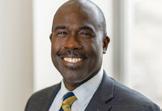
Dean Horace E. Anderson Jr. was named to the “2024 Trailblazers in Education” list published by City & State New York magazine.

Executive Director of the Environmental Law Program & Professor of Law for Designated Service in Environmental Law, Achinthi Vithanage, was named to the 2025 Lawdragon Green 500: Leaders in Environmental Law list.

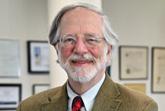
Professor Nicholas A. Robinson was honored with Pace University’s prestigious Presidential Lifetime Achievement Award
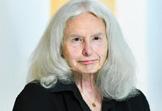
Professor Vanessa Merton was posthumously awarded the 2024 Ottinger Award for Faculty Achievement
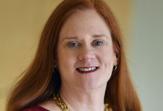
Professor Bridget J. Crawford was elected as a Fellow of the American College of Tax Counsel, a peer-elected organization of leading members of the Bar who have made significant contributions to the understanding and improvement of our tax system. Professor Crawford also became the American Tax Policy Institute President on January 1, 2025.

Professor Alexander K.A. Greenawalt was awarded the 2024 Goettel Prize for Faculty Scholarship for his article, With Intent to Destroy in Whole or in Part: Genocide, Ethnic Cleansing, and a Lost History published by Wisconsin Law Review (2024 Wis. L. Rev. 933 (2024)).
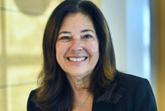
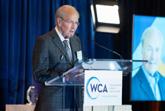
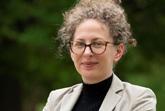
Professor Sonya Ziaja was selected to receive the 2024–2025 Pace Haub Environmental Law Distinguished Junior Scholar Award
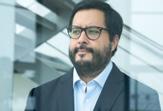
Professor Oscar Sumar, Deputy ViceChancellor of Academic Affairs for Business and Social Sciences at Universidad Científica del Sur, Peru, served as a Haub Visiting Scholar
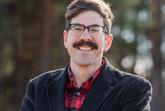
Anthony Moffa, Professor and Associate Dean for Innovation at the University of Maine School of Law, served as a Haub Visiting Scholar. He also delivered the 2025 Lloyd K. Garrison Lecture


Professor Barbara Atwell
“I am so very grateful to have spent 39 years as a law professor at the Elisabeth Haub School of Law at Pace Univeristy. I love academia, and will miss the youthful energy of the students. I’ll also miss my colleagues – both faculty and staff. It has truly been an honor so spend my professional life here, to have had the blessing of working with wonderful people, and to have had the stability that this profession afforded me. I’ve decided to retire now because as someone whose parents both died young, I realize that time is my most precious commodity. In addition, my partner loves to travel and I’m happy to go along for the ride. This year, we have trips planned to various parts of Africa and Europe. Thanks to everyone who journeyed alongside me during my time at Pace. I leave with much love and affection for the Law School.”
Professor Irene Johnson
Professor Irene Johnson joined the faculty of the Elisabeth Haub School of Law at Pace University in 1978. During her time at the Law School, she taught Wills, Intestate Succession and Trusts, Creditors’ Rights and Bankruptcy, and a number of Commercial Law courses. Professor Johnson was extremely dedicated to helping students who were having academic difficulty improve their law school performance. Before joining the faculty, Professor Johnson was a law clerk for The Honorable Paul R. Hays of the U.S. Court of Appeals for the Second Circuit.
Dean Horace Anderson
OTHER WRITINGS
Dean’s Remarks, 45 Pace L. Rev 621 (2025).
Professor Jonathan Brown
OTHER WRITINGS
Tribute to Vanessa Merton, 45 Pace L. Rev 689 (2025).
Professor Camila Bustos ARTICLES
Implementing Climate Remedies, __ vand. L. Rev __ (forthcoming 2026).
Representing Climate Wreckers, n.Y.U. env’t L.J. (forthcoming 2025).
Displacing Climate
Precarity, 87 aLb. L. Rev 799 (2024) (co-author with Julia Neusner).
Climate Migration in Colombia: A Foretold Tragedy?, 56 case W. RsvR J. Int’L L. 360 (2024).
BOOK CHAPTERS
The Role of Private Law Firms, in the OxfORd handbOOk Of cLImate change and PRIvate LaW (Doug Kysar and Ernest Lim, eds.) (forthcoming 2025).
Teaching Legal Ethics and the Climate Emergency, in edUcatIng LaWYeRs fOR cLImate and envIROnmentaL JUstIce: theORY and PRactIce (Richard Grimes, Stephen Levett & Rebecca Samaras, eds.) (forthcoming 2025).
OTHER WRITINGS
COP29 in the Rearview Mirror: A Receding Mirage –But the Possibility for Real Action on the Road Ahead, JUst secURItY (Dec. 4, 2024) (co-author with Achinthi Vithanage).
Professor David Cassuto
ARTICLE Powerless Beings: Solitary Confinement of Humans and Nonhumans in America, 102 neb. L. Rev. 527 (2024) (co-author with Michael Mushlin).
Professor Bridget Crawford
BOOKS
hOt fLash: hOW the LaW IgnORes menOPaUse and What We can dO abOUt It (co-author with Emily Gold Waldman and Naomi R. Cahn) (2024).
sOcIaL mOvements and the LaW: taLkIng abOUt bLack LIves matteR
and #metOO (co-editor with Lolita Buckner Inniss) (2025).
ARTICLES
Confronting Inequality: Three Eras of Gender and Tax Scholarship, 58 LOY. L. a . L. Rev (forthcoming 2025).
Risks, Benefits, Opportunities, and Electronic Formalities in the Law of Wills: A Comparative Approach, 70 mcgILL L.J. 139 (2025) (co-author with Margaret Hall, Rosie Harding, Kelly Purser & Tina Cockburn).
Taxing Sugar Babies, 109 mInn. L. Rev. 737 (2024).
Unintended Consequences of Fetal Personhood Statutes: Lessons From Tax, Trusts, and Estates, 25 geO. J. gendeR & L. 1159 (2024).
Period Rhetoric and Partisan Politics, 57 fam. L.Q. 265 (2024) (co-author with Emily Gold Waldman).
On the Human Right to Healthy Menstruation, 25 geO. J. gendeR & L. 1191 (2024).
Step-Up in Basis: Policy Perspectives on a Longstanding Tax Loophole, 7.2 bUs. & fIn. L. Rev. 54 (2024) (co-author with Crystal Lichtenberger, Kaitlin Maguire & Gigi McQuillan).
BOOK CHAPTERS
Menopause and Law, in the ROUtLedge handbOOk Of the anthROPOLOgY Of menstRUatIOn (Elisha Renne ed., forthcoming 2027) (co-author with Emily Gold Waldman & Naomi R. Cahn).
Menopause Capitalism and the Reinvention of Aging, in LaW, heaLthcaRe and the agIng bRaIn (I. Glenn Cohen, Nina Kohn, Francis Shen & Susannah Baruch eds., forthcoming 2026) (co-author with Emily Gold Waldman & Naomi R. Cahn).
Safeguarding Legal Capacity in the Context of Electronic Wills: A Comparative Law Approach, in a ReseaRch agenda fOR sUccessIOn LaW (Brian Sloan ed., forthcoming 2025) (coauthor with Rosie Harding, Tina Cockburn, Margaret Hall & Kelly Purser).
From Pregnancy to Menopause: Evolving Workplace Protections
in the United States, in menOPaUse dIscRImInatIOn acROss InstItUtIOnaL cOntexts: an InteRsectIOnaL aPPROach (Sue Westwood & Joanna Brewis eds., forthcoming 2025) (coauthor with Naomi R. Cahn & Emily Gold Waldman).
Menopause Discrimination at Work in the United States and United Kingdom, in ReseaRch handbOOk On LaW, sOcIetY and ageIng (Sue Westwood & Nancy J. Knauer eds., 2024) (co-author with Naomi R. Cahn & Emily Gold Waldman).
Using Feminist Judgments in Upper-Level Law Courses: Teaching Justice and Equality Across the Curriculum, in IntegRatIng dOctRIne & dIveRsItY: beYOnd the fIRst YeaR 3-15 (Nicole Dyszlewski et al. eds., 2024) (co-author with Kathryn M. Stanchi).
OTHER WRITINGS
Tampon Safety: The Need for Governmental and Manufacturer Action, gendeR POL’Y ReP (Sept. 23, 2024) (co-author with Emily Gold Waldman).
Professor Jason Czarnezki
ARTICLES
AI & ESG, 55 env’t LaW (forthcoming 2025) (coauthor with Morgan E. Martin and Barbara Ballan).
Managing Disclosures: ESG Alphabet Soup for Multinational Asset Management Firms, 20 n.Y.U. J. LaW & bUs 577 (2024) (coauthor with Maggie Pahl & Michael Hamersky).
Disclosure, Greenwashing & The Future of ESG Litigation, 81 Wash. & Lee L. Rev. 545 (2024). (co-author with Barbara Ballan).
Professor Salihah Denman
ARTICLE
Safeguarding Children from State Intervention, __ nOtRe dame J.L. ethIcs & PUb. POL’Y OnLIne (forthcoming 2025).
Professor James Fishman
UPDATES, SUPPLEMENTS, & NEW EDITIONS
2024 stUdent UPdate memORandUm and 2024 UPdate memORandUm tO teacheR’s manUaL tO nOnPROfIt ORganIzatIOns (6th ed.) (co-author with Stephen Schwarz, Lloyd
Hitoshi Mayer, & Roger Colinvaux).
2024 annUaL sUPPLement tO neW YORk nOnPROfIt LaW and PRactIce (3d ed.) (co-author with Victoria Bjorklund & Daniel Kurtz).
Professor Josh Galperin ARTICLES
Noise Law, mIch. J. env’t & admIn. L. __ (forthcoming). Interpreting Congress, 2025 WIs. L. Rev 89 (2025).
Governing Private Governance, 56 aRIz st. L. Rev 765 (2024).
A Restatement of Democracy, 69 vILL. L. Rev 55 (2024).
Improving Regulatory Notice, __smU L. Rev.__ (forthcoming) (co-author with E. Donald Elliott).
Living the Good Life in the Anthropocene, 54 env’t L. ReP 10857 (2025) (co-author with Karrigan Börk et al.).
BOOK CHAPTERS
Museum of Joy, in LIvIng the gOOd LIfe In the anthROPOcene (Rebecca Bratspies, Robin K. Craig, & JB Ruhl, eds.) (forthcoming 2026).
4Cs at 4C: Counting, Contestation, Communication, and Consideration for Collectively Constructing Concepts of Climate Change, in adaPtIng tO hIghLeveL WaRmIng: LaW, gOveRnance, and eQUItY (Katrina Kuh and Shannon Roesler, eds., 2024).
Can We Love Invasive Species to Death?, in LOve them tO death: tURnIng InvasIve PLants IntO LOcaL ecOnOmIc OPPORtUnItIes (Wendy Applequist, ed., 2025) (coauthor with Sara E. Kuebbing and Martin Nunez).
OTHER WRITINGS
The Sound of Silence in Major Questions Doctrine Jurisprudence, __ nat. Res & env’t __ , (forthcoming, Winter 2025) (co-author with Terra Baer).
Democracy, Climate Change, and the Major Questions Doctrine 98 st. JOhn’s. L. Rev 585 (2024) (invited symposium essay and keynote address).
Professor Bennett Gershman
ARTICLES
Despair for Democracy, 44 Pace L. Rev. 437 (2024).
Samia v. United States: An Inexplicable and Unprincipled Decision, cRIm L. bULL , Winter 2024, at 1.
BOOK CHAPTER
Teaching Constitutional Law When the Constitution is in Peril, in teachIng Of RIghts and JUstIce In LaW schOOL (Stephen Hurley and Chris Monaghan eds., 2025).
UPDATES, SUPPLEMENTS, & NEW EDITIONS mOdeRn cOnstItUtIOnaL LaW (13th ed. 2024).
OTHER WRITINGS
Vanessa Merton, In Her Own Words, 45 Pace L. Rev 625 (2025).
Professor Shelby Green
ARTICLES
Controlling the Mischief of New York’s Foreclosure Abuse Prevention Act Through Constitutional Preemption, __ tOURO L. Rev (forthcoming 2025).
The Transmogrification of Moratoria in Support of Rent Regulations: False Steps to Affordable Housing, 58 U.s f L. Rev 314 (2024).
Professor Alexander K.A. Greenawalt
ARTICLE
“With Intent to Destroy, in Whole or in Part”: Genocide, Ethnic cleansing, and a Lost History, 2024 WIs. L. Rev 933 (2024).
Professor Lissa Griffin
ARTICLE
Legal Professional Privilege in a Digital World: A Comparative Analysis, (coauthor with Dan Jasinski) bRItIsh J. am. LegaL stUd (forthcoming 2025).
BOOK CHAPTER
Teaching [In]Justice: Navigating the Fault Lines in Criminal Procedure, in teachIng Of RIghts and JUstIce In the LaW schOOL, (Stephen Hurley and Chris Monaghan, eds., 2025).
OTHER WRITINGS
Tribute to Vanessa Merton, 45 Pace L. Rev. 675 (2025).
Professor Jill Gross
BOOK the fedeRaL aRbItRatIOn act: sUccesses, faILURes, and a ROadmaP fOR RefORm (co-editor with Richard A. Bales) (2024).
BOOK CHAPTER
Drahozal on Southland: The Danger of Binary Thinking, in dIscUssIOns In dIsPUte ResOLUtIOn (vOLUme II): the cOmIng Of age (2000-2009) (A. Hinshaw, A. Schneider, and S. Cole eds., forthcoming 2025).
UPDATES, SUPPLEMENTS, & NEW EDITIONS
bROkeR-deaLeR LaW and RegULatIOn (5th ed. 2018 and 2025 supp.) (co-author with James Fanto & Norman Poser).
aRbItRatIOn: LaW, POLIcY and PRactIce (2d ed. 2024) (co-author with Maureen Weston, Kristen Blankley & Stephen Huber).
OTHER WRITINGS
A Century of ADR: Reflecting on the Federal Arbitration Act and Charting a Path for Reform, 43 aLteRnatIves 3 (March 2025).
Professor Katrina Fischer Kuh
BOOK
adaPtIng tO hIgh-LeveL WaRmIng: LaW, gOveRnance, and eQUItY (2024) (co-editor with Shannon Roesler).
ARTICLES
Mental Health as an Environmental Goal, env’t f., Jan.-Feb. 2025, at 29
New York’s Constitutional Guarantee of Environmental Rights, 27 n.Y.U. J. LegIs. & PUb POL’Y 361 (2025) (co-author with Nicholas Robinson & Scott Fein).
Avoiding Performative Climate Justice, 54 env’t L. ReP 10230 (2024).
Eco-Necrotourism and Public Land Management: Last Chance Tourism, Ecological Grief, and the World’s Disappearing Natural Wonders, 51 fLa st L. Rev 133 (2024) (co-author with Robin Craig).
BOOK CHAPTER
Avoiding Performative Climate Justice, in adaPtIng tO hIgh-LeveL WaRmIng: LaW, gOveRnance, and eQUItY (K. Kuh & S. Roesler eds., 2024).
Professor Thomas McDonnell
ARTICLE
Unsafe at Any Speed: ‘Safe Third Country Agreements’— Offshoring Responsibilities Owed to Refugees and Asylum-Seekers, __ fORdham URb. L. Rev __ (forthcoming 2025).
OTHER WRITINGS
Tribute to Vanessa Merton, 45 Pace L. Rev 671 (2025).
Professor Fernando Mendoza Lopez ARTICLES
On Fraud and the Nature of Government Contracts, __ maRQ. L. Rev __ (forthcoming).
Centralized Procurement: Use of Framework Agreements in Mexico, cOntemP ecOn. POL’Y (2025).
Professor Jessica Miles ARTICLES
Disgusted Judges & Domestic Violence, 55 setOn haLL L. Rev 353 (2024).
Confronting Domestic Violence, 28 U. Pa. J. cOnst. L. ___ (forthcoming 2025).
Professor Michael Mushlin
ARTICLE
Powerless Beings: Solitary Confinement of Humans and Nonhumans in America, 102 neb. L. Rev 527 (2024) (co-author with David Cassuto).
UPDATES, SUPPLEMENTS, & NEW EDITIONS
RIghts Of PRIsOneRs (5th ed. 2024 supp.).
Professor Smita Narula ARTICLES Realizing the Right to Food in Maine: Insights from International Law, 76 me. L. Rev. 165 (2024).
Beyond Reform: Food Sovereignty and the Future of Global Food Systems, 31 Ind. J. gLOb. LegaL stUd 141 (2024).
Professor John Nolon
ARTICLE
The Mysterious Power of Land Use Law: Constructing a Framework Law for Climate Resilient Development, __ kan. J.L. & POL’Y __ (forthcoming 2025).
Professor Richard Ottinger
BOOK a taLe Of tWO cItIes: a cOmPaRIsOn Of aIR POLLUtIOn gOveRnance In the LOs angeLes aRea Of the Usa and beIJIngtIanJIn-hebeI RegIOn Of chIna (2024) (co-author with Wang Xi).
Professor Margot Pollans ARTICLES
Abundance and Other Food Fixations, 96 U. cOLO. L. Rev. 209 (2025).
Gender Regrets: Banning Abortion and GenderAffirming Care, 2024 Utah L. Rev 763 (co-author with Noa Ben-Asher).
Professor Paul Rink ARTICLES
Conceptualizing U.S. Climate Rights Strategic Litigation, 49 haRv env’t. L. Rev 149 (2025).
OTHER WRITINGS
Incorporating Indigenous Stewardship in Land Management, 39 nat. Res. & env’t 37 (2025) (co-author with Michael O’Hora).
The Climate Crisis as a Form of Structural Violence Against Children and Youth, bmJ PaedIatRIcs OPen, Dec. 2024, at 1 (co-author with Michael Bourdillonet al.).
Litigation by Young People to Hold Governments to Account for Climate Damage, 8 bmJ PaedIatRIcs OPen, Oct. 2024, at 1(coauthor with Michael Bourdillon et al.).
Professor Nicholas Robinson
ARTICLES
New York’s Constitutional Guarantee of Environmental Rights, 27 n.Y.U. J. LegIs. & PUb POL’Y 361 (2025) (co-author with Katrina Fischer Kuh & Scott Fein).
State Responsibility for Disrupting Earth’s Climate System: Anticipating the ICJ Advisory Opinion, 55 env’t L. ReP 10073 (2025) (co-author with Natalia Urzola et al.).
UPDATES, SUPPLEMENTS, & NEW EDITIONS envIROnmentaL RegULatIOn Of ReaL PROPeRtY (2024 update).
Professor Michelle Simon ARTICLE
The Federal Future of Medication Abortion, 57 Ind L. Rev. 613 (2024).
Professor Leslie Y. Garfield Tenzer
ARTICLES
A Supreme Sidestep: The Justices’ Artful Dodge on Platform Immunity, 22 nW J. tech. & InteLL. PROP 263 (2025).
Defamation in the Age of Artificial Intelligence, 80 n.Y.U. ann sURv am. L. 135 (2024).
UPDATES, SUPPLEMENTS, & NEW EDITIONS cRImInaL defense technIQUes (2023 ed. and 2024 supp.) (co-author with Stuart Sacks & Alison Garfield).
Professor Achinthi C. Vithanage BOOK CHAPTERS
The Relationship Between the ILBI and International Environmental Law, in the maRIne bIOdIveRsItY beYOnd natIOnaL JURIsdIctIOn: cOmmentaRY and anaLYsIs (David Freestone & Joanna Mossop, eds., forthcoming 2025).
BBNJ Treaty, Chapter Z · International Environmental and Resources Law, in envIROnment, eneRgY, and ResOURces LaW: the YeaR In RevIeW 2023 z-1 (2024) (coauthor with ThuLan Pham).
BBNJ Treaty, Chapter Z · International Environmental and Resources Law, in envIROnment, eneRgY, and ResOURces LaW: the YeaR In RevIeW 2024 z-1 (2025) (coauthor with ThuLan Pham).
OTHER WRITINGS
ABA at COP28: Calling on the Legal Community for a Common Cause, ABA: tRends: sectIOn Of env’t, eneRgY & Res (Mar. 1, 2024) (co-author with Nadia Ahmad).
COP29 in the Rearview Mirror: A Receding Mirage –But the Possibility for Real Action on the Road Ahead, JUst secURItY (Dec. 4, 2024) (co-author with Camila Bustos).
Gender-Based Violence and Climate Change, env’t f., Mar.-Apr. 2025, at 35.
Professor Emily Waldman
BOOK hOt fLash: hOW the LaW IgnORes menOPaUse and What We can dO abOUt It (co-author with Bridget J. Crawford and Naomi R. Cahn) (2024).
ARTICLES
Parents at the Schoolhouse Gate, 104 n c. L. Rev (forthcoming).
From Garcetti to Kennedy: Teachers, Coaches, and Free Speech at Public Schools, 11 beLmOnt L. Rev 239 (2024).
Period Rhetoric and Partisan Politics, 57 fam. L.Q. 265 (2024) (co-author with Bridget Crawford).
BOOK CHAPTERS
Menopause and Law, in the ROUtLedge handbOOk Of the anthROPOLOgY Of menstRUatIOn (Elisha Renne ed., forthcoming 2027) (co-author with Bridget Crawford & Naomi R. Cahn). Menopause Capitalism and the Reinvention of Aging, in LaW, heaLthcaRe and the agIng bRaIn (I. Glenn Cohen, Nina Kohn, Francis Shen & Susannah Baruch eds., forthcoming 2026) (co-author with Bridget Crawford & Naomi R. Cahn).
From Pregnancy to Menopause: Evolving Workplace Protections in the United States, in menOPaUse dIscRImInatIOn acROss InstItUtIOnaL cOntexts: an InteRsectIOnaL aPPROach (Sue Westwood & Joanna Brewis eds., forthcoming 2025) (coauthor with Naomi R. Cahn & Bridget Crawford).
Menopause Discrimination at Work in the United States and United Kingdom, in ReseaRch handbOOk On LaW, sOcIetY and ageIng (Sue Westwood & Nancy J. Knauer eds., 2024) (co-author with Naomi R. Cahn & Bridget Crawford).
OTHER WRITINGS
Tampon Safety: The Need for Governmental and Manufacturer Action, gendeR POL’Y ReP (Sept. 23, 2024) (co-author with Bridget Crawford).
Professor Amelia Wilson
ARTICLE Immigration Detention as Continuing Seizure, __ geO Wash. L. Rev __ (forthcoming 2025).
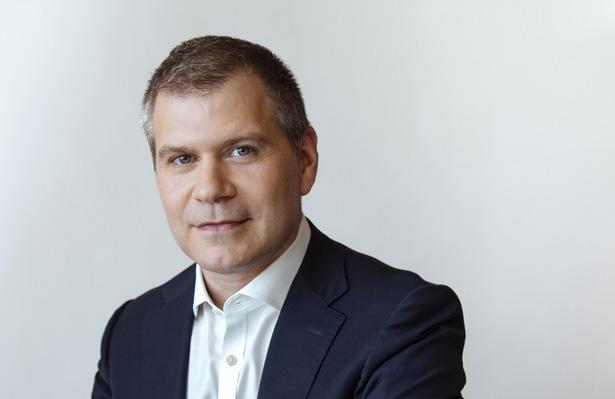
Throughout his legal journey, Paul Humphreys ’09, has consistently exemplified the values of leadership, service, and mentorship. Currently a partner and office managing partner in the New York office of Freshfields US LLP, Paul has built a remarkable career focused on US and cross-border public and private M&A. Today, Paul attributes much of his professional success to the education he received at the Elisabeth Haub School of Law at Pace University and in turn, takes every opportunity he can to support his alma mater.
Paul entered law school with a unique perspective, having recently returned from Japan after teaching English there and was doing the same thing at Keio Academy in Purchase, New York. “I knew I wanted to pursue a graduate degree and ultimately decided a law degree would suit me best. Both of my parents were educators, and I was the first in my family to attend law school. Pace Haub Law offered me a generous financial aid package and I made the decision to start law school while I continued to teach at Keio.”
Reflecting on his law school journey, Paul credits the school with preparing him to succeed in a competitive legal market. “Pace Haub Law is a place where people receive an education, not just a credential,” said Paul. “The professors and the School spend a tremendous amount of time helping students understand the material
and creating experiences outside of the classroom to further that –externships, clinics, study abroad opportunities - so that students are well-trained future lawyers when they leave the halls of the Law School.” Professor Leslie Garfield Tenzer is one of the professors that Paul
“ MY TIME AS A LAW STUDENT AT PACE HAUB LAW WAS TRANSFORMATIVE. BY MAINTAINING STRONG TIES TO THE LAW SCHOOL COMMUNITY –WHETHER IT IS THROUGH TEACHING, MENTORSHIP, OR PHILANTHROPY – I AM HELPING TO ENSURE THE SAME LEVEL OF SUCCESS TO FUTURE GENERATIONS.”
PAUL HUMPHREYS ’09
feels really makes an impact with students. “Professor Tenzer always took the time to review my written work product in detail and give me meaningful feedback. Though I had no idea at the time, this is the same relationship partners developed with me as a law firm associate, and the relationship I now have with the associates on my teams. All the professors at the Law School are invested in their students’ success.”
Paul’s connection to the Law School has remained strong since graduation. “I am a testament to the doors that can be opened with a Pace Haub Law degree and staying involved with my law school in various capacities is how I give back and also pay it forward.” Paul supports the Law School by providing mentorship to students, assisting the Center for Career and Professional Development by participating in mock interviews with students, as a guest professor in M&A and international business transactions courses, as a generous donor, and by serving on the School’s Board of Visitors.
“Countless individuals in the Law School community invested their time and energy into developing me as a law student and lawyer,” shared Paul. “I have been fortunate enough to turn that into a very successful career at a global law firm. Current and future students deserve that same level of attention and resources. I want to take some of what I have been fortunate enough to earn and put those resources to work for future lawyers who are drawn to the Pace Haub Law community.”
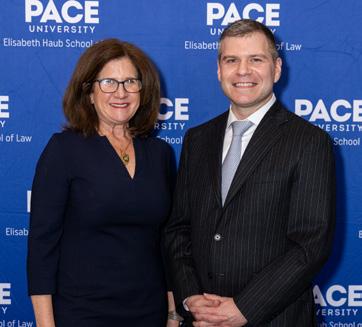
In recognition of his outstanding service and commitment to Pace Haub Law, Paul was presented with the 2024 Distinguished Service Award at the Law School’s annual Law Leadership Dinner, the School’s signature fundraiser and alumni celebration. During the ceremony, in a full circle moment, Professor Tenzer shared heartfelt reflections on his growth from an exceptional student to a highly respected legal professional and supporter who goes “above and beyond” in his support of the School.
“ PROFESSOR TENZER ALWAYS TOOK THE TIME TO REVIEW MY WRITTEN WORK PRODUCT IN DETAIL AND GIVE ME MEANINGFUL FEEDBACK.”
PAUL HUMPHREYS ’09
“I am passionate about mentorship, education, and leadership,” said Paul. “My time as a law student at Pace Haub Law was transformative. By maintaining strong ties to the Law School community – whether it is through teaching, mentorship, or philanthropy – I am helping to ensure the same level of success to future generations of legal professionals. There are so many ways you can give back to your educational institutions. As practicing lawyers, one of the most valuable ways you can give back is through your time. For first generation lawyers in particular, sharing your real-world experience as a lawyer and answering students’ most basic questions can define their career trajectories. And, if you have the wherewithal, financial support is always impactful – you are investing in the future of the profession, not just in Pace Haub Law. When I reflect upon my good fortune to enjoy such a fulfilling, exciting and successful career, Pace Haub Law is a part of that story. I could never repay all that I received, but it still feels good to give back to the community that gave me so much.” n
Susan Cacace ’89 began her legal career as an Assistant District Attorney of Westchester County after graduating from what was then known as Pace Law School. In 2005, she began her nearly 20 years of service as a Westchester County Court Judge. A dedicated public servant, after spending 30 years as a prosecutor, defense attorney, and judge, she decided it was time to pursue a lifetime dream of serving Westchester County as the District Attorney. Now, after winning the election and taking office earlier this year, Westchester County DA Susan Cacace has an ambitious list of priorities to “bring Westchester to a better place.”
What was your path to law school?
I am one of those people who knew that they wanted to be a lawyer from a very young age. My father was a judge in Yonkers, and he was my motivation when I was a kid. I often went to court with him and enjoyed seeing arraignments and courtroom dynamics. Right away, I knew I was most interested in criminal law and also because of the values instilled by my father, I knew I wanted to go into a career of public service.
What made you choose what is now known as the Elisabeth Haub School of Law at Pace University to pursue your law degree?
My father was instrumental in that as well. At the time, Pace Law was a newer school. My father suggested that it did not make sense to waste time commuting to a school too far
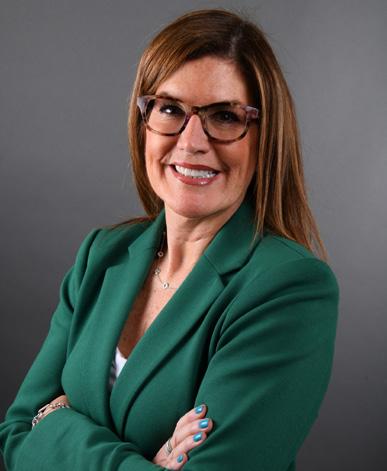
away since a majority of my time would be spent studying. We lived in nearby Yonkers, so I followed his suggestion and chose Pace Law. I had also attended Pace University as an undergraduate student. My husband is a graduate of the Law School as well. And, in a full circle moment, my youngest daughter is graduating from college in May and just sent in her deposit to attend Pace Haub Law in the fall.
“ THE LAW SCHOOL DOES A GREAT JOB OF PREPARING YOU TO ENTER THE LEGAL MARKET AS AN EMBEDDED MEMBER OF THE WESTCHESTER COMMUNITY.”
DISTRICT ATTORNEY SUSAN CACACE ’89
Who were some of your most impactful professors and experiences during your time at the Law School?
Professor Ralph Stein – he was a legend in his own time. Professor Don Doernberg was great. Professor Hervey Johnson, he was my contracts professor and was wonderful. Also, Professor Jay Carlisle had a great impact on me, and still does. The Pace London Law Program was a highlight of my time as a law student. It was the dream of a lifetime and a great experience.
How do you feel the Law School prepared you for your legal journey?
I feel it prepared me well – I was able to take courses and have experiences that gave me the confidence I needed to succeed. As a young assistant district attorney, having that confidence is important because at some point you do end up in court and that is when the confidence and knowledge that you gained in law school gets put to work.
The Law School does a great job of preparing you to enter the legal market as an embedded member of the Westchester community. As a student, you have the opportunity to be exposed to various bar associations and networking opportunities during law school. Through these opportunities, you get to know so many different people within the legal community – lawyers, judges, and more. I was fortunate enough to be a Columbian Lawyers Association scholarship recipient and because of that I met some of the members of the Association. The first thing I did when I graduated law school was join that organization, many members whom I already knew between the opportunities at the Law School and also because of my scholarship.
You retired after nearly 20 years on the bench, what drove you to decide to pursue running for Westchester County DA?
I had been thinking about it for a long time, but the time was never quite right. This time, I just knew. I had been a judge for almost 20 years. Being Westchester County DA was always something I wanted to do. I was prepared for it, I had the experience, I had the drive, and the opportunity was there so I decided to go for it. Westchester is my home and I am committed to making it safer and bringing it to a better place.
What are some of your priorities as Westchester County DA?
Getting back to the basics, being tough on violent crime for one. My motto during my campaign was Justice with Compassion – justice for the violent criminals, compassion for first-time offenders. We need to hold people accountable who have been in the system, utilize alternatives to incarceration where possible, take guns off the streets, tackle the opioid crisis, be responsive to bias crimes, and focus on reducing sex offenses. I was the sex offense judge for Westchester County for over 14 years. Every sex offense that was committed in Westchester County ran through my part. It was very challenging, but you become an expert. We had a good relationship with the Department of Probation and the end result was Westchester was safer. Working together is key. You need to make sure everyone is given justice, while the public is protected.
Do you have any advice for law students who want to get into public interest law or run for elected office one day?
If politics is in your future, make sure you establish your reputation early on. Get involved in your local community organizations. Give back no matter what you are doing. For public interest, that is a lifestyle choice, and you have to decide how you feel about service. I enjoy giving back and I was always inclined towards public service because of how I was raised and how I saw my father establish his career as a judge. There are things you will sacrifice in a career devoted to public service, but the feeling of helping people and giving back is unmatched. n
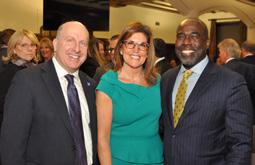
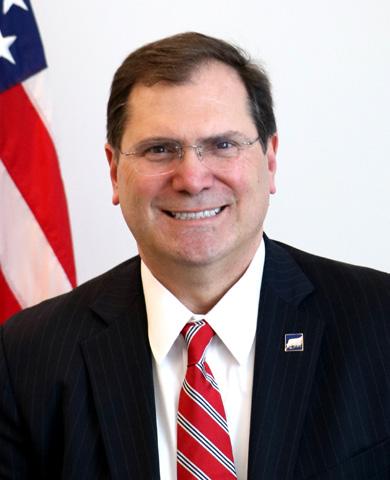
John A. Sarcone III ’95, United States Attorney for the Northern District of New York, is one of only 93 individuals appointed by the President to serve as the chief federal law enforcement officer in the 94 federal districts. In this role, he leads efforts to prosecute federal crimes and oversee civil litigation where the United States is a party, spanning 32 counties across northern New York. John’s path to this prestigious role was one built on hard work and a commitment to education, namely Pace – having received his undergraduate degree at Pace University’s Dyson College of Arts and Sciences and later, his law degree at what was then known as Pace Law School.
John knew early on that law was his calling. A business law class in high school first ignited his interest, and the idea of using legal tools to confront injustice resonated deeply. “Throughout my life, if I saw something that was unjust or harmful, I wanted to be the one who could help fix it,” he reflects. “Being a lawyer meant being in a position to contribute to society, to counsel people, and to find solutions to difficult problems. That was appealing to me.”
After John’s father passed away when John was just 25, he became the primary provider for his family, including a younger sister and two brothers. Working full-time jobs at Metro-North Railroad—ranging from payroll and operations
at Grand Central to ticket collecting—John pursued his law degree in Pace Law’s evening division (now the Elisabeth Haub School of Law at Pace University), often spending every spare moment in the law library.
“Pace gave me the ability to build the career I have today,” said John. “I completed my undergraduate degree at Pace and had a positive experience. Coupled with the fact that I needed to attend a school with an evening program, Pace just made sense for me. I also wanted to pursue a career in international law and the Law School had a great program.” John quickly became an active and engaged member of the Law School community. He was deeply involved in the Pace International Law Society, organizing a landmark student-led symposium on the war in Yugoslavia that featured UN ambassadors and prominent scholars. He also served as Managing Editor of the Pace International Law Review (PILR).

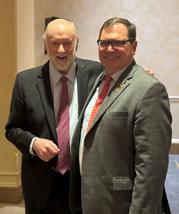
John fondly recalls his time at Pace Haub Law and his professors— including Willem Vis, Gayl Westerman, Prakash Sinha, Shelby Green, Ralph Stein, Bennett Gershman, Jay Carlisle, and others—noting that he “didn’t have one bad experience.” His hard work and commitment were recognized at commencement with the Dean’s Award for the Evening Division.
John’s post-law school career reflects a deep commitment to both public service and private legal practice. Prior to his current role, he served as Northeast and Caribbean Regional Administrator for the U.S. General Services Administration, where he oversaw federal buildings, procurement, and IT initiatives across dozens of federal agencies. He also served as Town Attorney for Eastchester, NY, and General Counsel to both the United Federation of Special Police Officers and the Association of Commuter Rail Employees. He also built a successful general practice law firm, advising small businesses, handling real estate transactions, and litigating across a range of complex areas, from toxic torts to insurance defense. John shares that, to him, the law has always been about more than just being an attorney—it has been about helping people and counseling them towards the best possible outcome.
As U.S. Attorney, John has made it a priority to visit all 32 counties under his jurisdiction, meeting with local law enforcement, district attorneys, and community leaders. “My priority is making and keeping these communities safe,” he affirms. A passionate believer in giving back, he has consistently supported Pace Haub Law through hiring graduates and staying active in his alumni network. “When you hire graduates, you’re not just helping them—you’re investing in the future of the Law School.”
John was active with the Alumni Association as a student and alumnus until 2017, and he remains a strong ambassador for his Alma Mater. “I’m Pace’s biggest cheerleader,” he said. “My goal is always to help raise the profile of the School to where it deserves to be.” John enjoys continuing to connect with fellow alumni, many of whom he’s encountered over the years in court, at bar events, and through professional networks. Grateful for the support Pace provided during a pivotal time in his life, John remains committed to paying that support forward. “The Law School is a part of who I am,” he says. “And I’ll continue doing everything I can to elevate its name and reputation.”
Despite a demanding professional role, John makes time for what matters most. He enjoys traveling with his wife, golfing, and spending time with his children—one of whom is now preparing for the LSAT. n
“ PACE GAVE ME THE ABILITY TO BUILD THE CAREER I HAVE TODAY.”
JOHN SARCONE ’95
From a cattle farm in Illinois to a law office in Manhattan, Cari Rincker ’07 has built a career at the intersection of agriculture, law, and advocacy. Founder of Rincker Law PLLC, a firm focused on food, agriculture, and family law, Cari has forged her own path as a lawyer, educator, author, and podcast host—all while staying rooted in her rural beginnings and passionate about helping others navigate complex legal landscapes.
When Cari Rincker ’07 was young, she wanted to be a lawyer but did not know many lawyers or fully understand what they did. After obtaining degrees in Agriculture Science and Animal Science, Cari realized that a law degree would allow her to pursue her passion in these areas and help others. Once Cari decided to apply to law school, she knew that the Elisabeth Haub School of Law at Pace University was where she wanted to pursue her degree. “Pace Haub Law had the combination I was looking for – its geography and excellent environmental law program were perfect for me. I will never forget, I was living in Rome, Italy at the time and volunteering with the Food & Agriculture Organization – I cried with happiness when I got the news that I was accepted.”
Cari’s time at the Law School was filled with passionate professors and interesting courses. “My biggest wake-up call was with Professor Ann Powers and the environmental skills course. It was there I learned how to really read, analyze, and understand statutes and
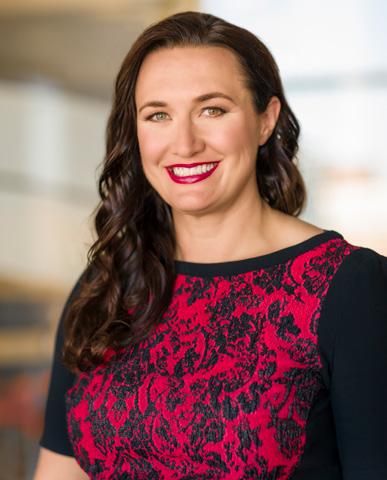
corresponding regulations. I also loved my Land Use Law course with Professor John Nolon and oftentimes think of those concepts today. Surprisingly, though, my favorite class was tax law with Professor Bridget Crawford. She is an incredibly talented professor who uses fantastic examples to bring concepts to life and keep you interested.”
“ YOU HAVE TO JUMP. I KNOW IT’S SCARY AND YOU HAVE NO CLUE IF YOUR WINGS WILL OPEN OR IF YOU WILL TUMBLE DOWN THE CLIFF. BUT AT SOME POINT, YOU HAVE TO JUMP.”
CARI RINCKER ’07
In 2009, only two short years after graduating from law school with certificates in both environmental law and international law, Cari launched her own practice, Rincker Law PLLC, focused on food and agriculture law. “My passion for agriculture issues is deeply rooted. I grew up on a seedstock Simmental cattle operation in Shelbyville, Illinois where I worked on my family’s farm. While I had degrees prior to law school in these areas, the education I received at Pace Haub Law really brought it all together for me. I was immersed in environmental law classes that were both challenging and enlightening, and gave me the confidence to continue pursuing a career in these specific areas of law.” When she graduated from the Law School, Cari knew that she wanted to serve different segments of the food and agriculture industry, but she wanted to do it in New York City.
“In order to pursue these areas of law in New York City I needed to pave my own path and do it on my own, so that is what I did.” On the risk of starting her own practice, Cari acknowledged the fears that often accompany it.“You have to jump. I know it’s scary and you have no clue if your wings will open or if you will tumble down the cliff. But at some point, you have to jump.” Cari recalls the early days of launching her firm in a small studio apartment on the Upper East Side. To fund her dream, she did contract attorney work in New York until her law practice was self-sustaining. Cari also started taking on different types of cases, which included a divorce case, and then a few more divorce cases. Before she knew it, Cari had found an additional passion in family law. Eventually, Cari built her practice up case by case and client by client and moved her office to a space near Grand Central Station. Today, Rincker Law, PLLC is headquartered in Champaign, Illinois with two satellite offices in both Shelbyville and New York City. “I grew up on a farm in Illinois, I attended graduate school in Illinois, and much of my family is in Illinois,” shared Cari. “To eventually move the headquarters of my practice to Illinois made sense and fortunately, I am able to maintain my client base in New York City seamlessly with technology today.”
Cari is also a trained mediator and passionate about alternative dispute resolution. “I love it in so many ways, but mostly because it helps preserve family relationships. Mediation also helps people have their own autonomy over their own agreements that hopefully will stick.” Cari also teaches mediation and agriculture and environmental law at the University of Illinois and an online course at Vermont Law School. “I love

reaching that moment in the semester where you can tell it’s all clicking.”
Not one to slow down, Cari is also a published author. “I believe that one of the best ways you can be a good lawyer and stay abreast of all the constantly evolving laws and regulations is to read, research, and write.” Cari has authored four books and manages an award-winning Food, Farm and Family law blog. “Being a resource to the community is of paramount importance to me and my law practice.”
In the last few years, Cari has also added podcasting to her resume, launching The Billable Mom in 2024, where she talks about working motherhood, with a focus on lawyers and other professionals. “As a working mom of two, the impetus for this podcast was very personal. I wanted to speak candidly about working motherhood and the struggles to juggle it all.” In her podcast, Cari and her guests explore time management tips, productivity hacks, and delve into a variety of issues including maternity leave, making time for yourself, and more. “Balancing a career and the demands of motherhood can feel overwhelming. I wanted to provide a platform to share that we are not alone in our struggles, while also providing practical tips and advice to help navigate it.” n
Jerry Silber ’83 retired from Verizon as VP & Deputy General Counsel. While at Verizon, Jerry partnered with the Elisabeth Haub School of Law at Pace University to bring the firm’s Street Law Program to campus—an initiative designed to introduce high school students from underserved communities in Westchester to the legal system and inspire them to pursue careers in law. Since leaving Verizon, Jerry has been advising several startups and mature companies on commercial and regulatory matters. Jerry also has returned to the Law School as an Adjunct Professor.
Harold E. Kaplan, BBA ’72, JD ’83, Florida Board Certified in Health Law (1995-2020), and admitted in New York, was a volunteer attorney at the Pisgah Legal Services Asheville, NC re-parole clinic, assisting Ukrainians to extend their parole status. Harold is the principal of Kaplan Arbitration located in Fairview, North Carolina, which focuses exclusively on nationwide arbitration of health care and contract disputes and arbitration case consultation.
Anthony J. Enea ’85, managing partner at Enea, Scanlan & Sirignano, LLP, was recognized for his outstanding contributions to the legal profession and his dedicated service to the Westchester County Bar Foundation at the organization’s 13th Annual Benefit.
Charles Destefano ’86 was appointed Policy Chair (Executive Committee) of the Democratic Party of Richmond County. In 2023, he was elected to serve as the President of the Staten Island Trial Lawyers Association. In June 2024, he was elected to the executive board as secretary of the Richmond County Bar Association.
Elisabeth Russell ’86 released an 11-part podcast called Doppelnamers, unveiling the story of a pioneer named Elizabeth Russell who was tried for murder in Eau Claire, Wisconsin in 1892.
Gerald Massell ’87 is a Judge of Compensation in New Jersey.
Vincent Riverso ’87 has been an arbitrator and mediator with the American Arbitration Association Construction Panel since 1991. He is also a member of the National Academy of Forensic Engineers and a Diplomat of Forensic Engineering.
John M. Vorperian ’87 was awarded the Edwin G. Michaelian Award for Public Service for his contributions to Armenian history and culture in Westchester County.
Anonthy Schembri ’88 is the author of In Russia: A Brooklyn Solution
Nancy Barry ’89 recently retired from the NYS Courts and took the position of First Deputy District Attorney and Chief of Staff in the Westchester County District Attorney’s Office, working alongside her former classmate, District Attorney Susan Cacace ’89.

Jacqueline Hattar ’91, a partner at Wilson Elser Moskowitz Edelman & Dicker, LLP, was awarded the New York State Bar Association Trial Lawyers Section’s 5th Annual Justice Ruth Bader Ginsburg Vanguard Award for 2024. Jacqueline is a longtime member of the Pace Women’s Justice Center’s Advisory Board and member of the Board of Visitors.
Elizabeth Larrauri Chamulak ’92 joined Kudman Trachten Aloe Posner LLP as Special Counsel and the leader of the firm’s Trusts & Estates Group in its New York office.
Maya van Rossum ’92 was featured in an expansive profile on Inside Climate News
Marla Wieder ’93 was profiled in the Reuters: Careers in Law section where she speaks about her impressive career in environmental law.
Robert Migliorelli ’98 joined Alfred Sanzari Enterprises as vice president and general counsel.
Dana Brescia ’00 joined the law firm of Kirby Aisner & Curley LLP, located in Scarsdale, NY as of counsel.
Basil Seggos ’01 joined the law firm Foley Hoag as a partner and senior policy director.

George C.D. Duke ’02 joined Fox Rothschild in New York as Partner in the Environmental Department.
Janice Dean ’05 accepted the Leadership in Action award from the New York City Environmental Law Leadership Institute (NYCELLI)
Brian L. Miller ’05 was named Partner at Littman Krooks LLP.
2006
Chioma Deere ’06 joined the South Florida office of Schwartz Sladkus Reich Greenberg Atlas LLP (SSRGA) as senior counsel.
Jennifer Sculco ’06 was appointed as the new Deputy Inspector General for the
Upstate Regional Office of the Inspector General. Prior to this, Deputy IG Sculco served as Chief of the Public Integrity & Law Enforcement Integrity Bureau at the Westchester County District Attorney’s Office.
Lisa Denig ’09 received the Distinguished Alumni Award for Civic Contribution from SUNY Westchester Community College.
Malaika Scott-McLaughlin ’09 was elected as Manhattan Civil Court Judge

Gail Mulligan ’09 and her husband, Matthew Clement, are proud to announce the birth of their new baby boy, Ethan. Born in November 2024, baby Ethan joins his two proud big brothers, Andrew and Colin! Gail is currently a Labor Relations Administrator with the Rockland County Department of Personnel.
Bryn Goodman ’11 joined the NYC office of Jackson Lewis P.C. as a principal.
Jennifer Pelton ’11 is working with Change the Air and started a state-wide lobbying group in Pennsylvania to fight for clean air. She also started a nationwide group of professionals advocating for laws regarding mold and indoor air quality.
Catherine Cioffi ’12 was recognized as a ‘Woman Innovator’ by Westfair Business Journals
Radina Valova ’12, ’13 was appointed to the Public Service Commission by Governor Kathy Hochul.
Greg Dreyfuss ’13 is the Managing Director, Analytics & Baseball Operations with the Major League Baseball Players Association.

Miriam Lacroix ’14 joined Cardozo School of Law as the Director of Community & Professional Development, Diversity & Inclusion.
Adrianna Rudzinsky ’14 was welcomed by MG+M Law Firm as a partner in their New Jersey office.
Simon Kieser’s LLM ’15 recent open-access article, published in the Australian Journal of Human Rights (Taylor & Francis / Routledge), was featured by the University of Cambridge. The open-access article critically examines Australia’s Yarra River Protection (Wilip-gin Birrarung murron) Act 2017 (Vic) in light of the United Nations Declaration on the Rights of Indigenous Peoples (UNDRIP).
Robert L. Foster ’16 wrote a book titled Subordinating American Democracy: Exploring the Functionality of “Dysfunctional” Hyperpartisanship

David Solimeno ’18 was recognized as an individual ABA Free Legal Answers Pro Bono Leader for 2024. He is an associate with Barclay Damon.
Jeffrey Deskovic’s ’19 foundation, the Jeffrey Deskovic Foundation for Justice, held its third annual Gala. The keynote speakers for this year’s Gala included: Khaliah Ali, daughter of boxing great Muhammad Ali, and Jason Flom of the Wrongful Conviction Podcast and CEO of Lava Media.

Natalie Panzera ’19 and her husband Rob Panzera ’19 welcomed a baby girl this past spring. Scarlett Ann was born on March 28, 2025. Natalie is a professor in the Academic Excellence Office of the Touro University Jacob D. Fuchsberg Law Center and Rob is an attorney at Sobo & Sobo, LLP.

Ibadete Lita ’21 joined the firm Tanenbaum Keale LLP as an associate in the Newark office.
Brianna Winning ’21 is an Associate Attorney with Murphy McKeon, P.C.

Diego Gomez ’22, Center Attorney at the Legal Hand Call-In Center serving Westchester County, has been named a 2025 Wunderkind by Westchester Magazine’s 914INC. The annual Wunderkinds list honors the region’s most dynamic and innovative young professionals under the age of 35.
Caroline Chen LLM ’23 joined the NY Lawyers for the Public Interest, a legal civil rights firm based in NYC, upon obtaining her LLM with a specialization in Energy and Climate Change in 2023.
May Theobalt ’23 joined Twomey, Latham, Shea, Kelley, Dubin & Quartararo, LLP as an Associate.
Madison Powers ’24 is an associate with Yankwitt LLP.
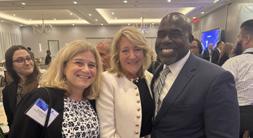
The Honorable Linda S. Jamieson ’79 was honored with the James D. Hopkins Lifetime Achievement Award at the 2025 Westchester County Bar Association’s 125th Annual Gala and Installation of Officers. Justice Linda S. Jamieson currently sits in a Civil Trial Part and the Commercial Division of the Supreme Court. She was elected as a Justice of the Supreme Court in November 2002 and took office in 2003. Justice Jamieson is a member of the Law School’s Board of Visitors.
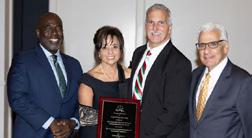
Dean for Student & Campus Affairs, Angie D’Agostino ’99, was honored with the Honorable Richard J. Daronco Distinguished Service Award at the 2025 Columbian Lawyers 40th Anniversary Dinner. The Award, named after a former Justice of the Supreme Court of Westchester County and Judge of the United States District Court, is presented to ItalianAmerican lawyers who have made significant contributions to the bench or bar. Dean D’Agostino joined the staff of the Elisabeth Haub School of Law at Pace University nearly 40 years ago, in 1986, and has played a key role in the Law School’s success.
LET’S CONNECT!
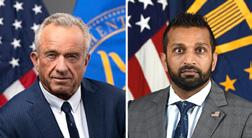
Robert F. Kennedy, Jr. LLM ’87, former Professor of Law and Co-Director of the Pace Environmental Litigation Clinic, was appointed Secretary of the U.S. Department of Health and Human Services.
Kash Patel ’05 was appointed Director of the Federal Bureau of Investigation. These are the first alumni of the Elisabeth Haub School of Law at Pace University to be appointed to their respective Senate-confirmed leadership positions in the executive branch of the U.S. government.
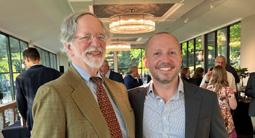
Basil Seggos ’01 was honored with Riverkeeper’s Big Fish Award at the 2025 Summer Splash Gala for his leadership in protecting New York’s environment and advancing bold climate and clean water initiatives. As the longest-serving Commissioner of the New York State Department of Environmental Conservation, Basil helped shape landmark environmental policy. Faculty, alumni, and friends of Pace Haub Law were also in attendance to celebrate this milestone.
Update us with your latest professional and personal news!
Prefer to submit your updates by email? Contact plsalumni@law.pace.edu
The Elisabeth Haub School of Law at Pace University’s Alumni Association Board of Directors Judicial Committee proudly sponsored a small group admission ceremony to the Supreme Court of the United States for a select group of alumni. The initiative was led by long-time Alumni Board member Joe Mazel ’97. The Ceremony took place before the Court, en banc, and immediately preceded the oral arguments scheduled before the Court for that day’s session. To commemorate the occasion, Pace Haub Law alumni gathered the evening before at a networking event in Washington, DC, where Dean Horace E. Anderson, Jr. offered remarks and celebrated the achievements of the Law School and its alumni.
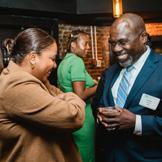
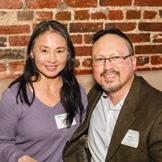

IMMEDIATE
After the passing of two long-term and dedicated Alumni Board Members, the Honorable Sandra A. Forster ’79 and Adele Lerman Janow ’90, the Alumni Board decided to establish an Immediate Impact Scholarship to commemorate the lives of these esteemed alumnae, The Adele Janow and Judge Sandra Forster Memorial Scholarship. In addition to being lively presences on the Board and extremely committed to the betterment of the Law School, both were respected members of the Westchester community and beyond. Through the generosity of the alumni board along with the family and friends of Judge Forster and Adele Janow, law student Reese Frisch ’26 was awarded the memorial scholarship.
“Attending law school has been the toughest challenge I’ve ever faced, and it hasn’t been easy,” shared scholarship recipient Reese Frisch ’26. “My commitment to justice drives everything I do, shaping both my academic and professional journey as I prepare for a career dedicated to advocacy and meaningful change. I am deeply grateful for the support of this scholarship, which has made it possible for me to continue pursuing my goals.”

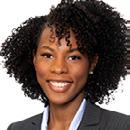
Monica Lindsay ’19
Associate
Cleary Gottlieb Steen & Hamilton LLP
“Elisabeth Haub School of Law at Pace University taught me that success isn’t about prestige—it’s about preparation, perseverance, and people and that has shaped the foundation of the way I practice law and interact with my clients and community every day.”
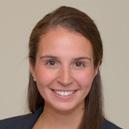
Lauren Enea ’16
Partner
Enea, Scanlan & Sirignano, LLP
“As an Elisabeth Haub School of Law at Pace University alumna, I’ve always felt a deep connection to the Westchester community. So many important people in my life — colleagues, friends, mentors, and even my father —are fellow graduates. My experience at the Law School has given me strong roots in our community.”
OFFICERS MEMBERS
Jacqueline A. Parker ’95
ALUMNI ASSOCIATION
PRESIDENT
Daniel von Staats ’24
ALUMNI ASSOCIATION
VICE PRESIDENT
Gail M. Mulligan ’09
ALUMNI ASSOCIATION
TREASURER
Leanne Shofi ’94
ALUMNI ASSOCIATION SECRETARY
Patricia Bisesto ’92
Amanda Brody ’19
George Burns, Jr. ’12
Victoria Coleman ’07
Kayla Conti ’22
Rafael Corbalan ’15
Elizabeth Cuccinello ’99
Danielle Federico ’13
Stephen Forte ’08
Michael Frankel ’03
James Garvey III ’80 Director Emeritus
Rebecca Gigliotti ’18
Lisa Gladwell ’10
George Haddad ’15
Shari Hochberg ’12
Ashley Kersting ’16
Michael Kremen ’08
James Lenihan ’91
Hon. Carole Levy ’83
Director Emeritus
Benjamin Lowenthal ’14
Joseph Martin ’91 Director Emeritus
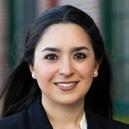
Nicolette Pellegrino ’18
Assistant Director of Legal Recruitment New York City Law Department
“My professors and experiences at the Elisabeth Haub School of Law at Pace University provided me with a solid foundation to become the attorney I am today. Values and skills such as hard work, dedication, and collaboration have been key tools in my successes. I will always be grateful for Pace Haub Law.”
Joseph Mazel ’97
Mark Meeker, Dec. ’09 Director Emeritus
Diana Neeves ’16
Raymond Perez ’00
Thomas Persico ’18
Delonie Plummer ’18
Christopher Psihoules ’12
Cassia Schaeffer ’15
Andrew Teodorescu ’13
Nicole Varisco ’10
Alumni gathered for the 2025 Elisabeth Haub School of Law at Pace University Alumni Reunion held at Sam’s of Gedney Way in White Plains. All alumni classes were invited to this special event with members from the classes of 1980, 1985, 1990, 1995, 2000, 2005, 2010, 2015, and 2020 celebrating milestone reunions. The Class of 2025 was also recognized at their first official alumni event.
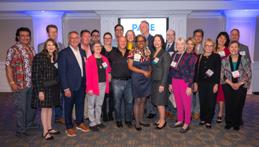

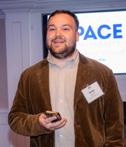
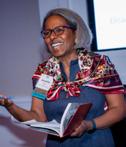
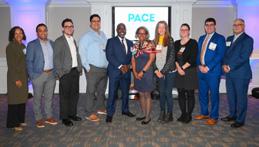

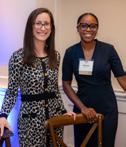
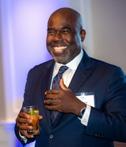

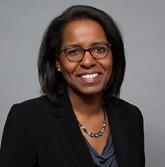
Jacqueline A. Parker, Esq. ’95
DEAR FELLOW ALUMNI,
THE BOARD HAD ANOTHER BUSY AND VERY PRODUCTIVE YEAR. THERE REMAIN MANY WAYS TO BECOME INVOLVED WITH OUR ALUMNI ASSOCIATION AND I ENCOURAGE YOU TO DO SO. OUR MEETINGS CONTINUE TO BE HELD IN A HYBRID FORMAT TO ENCOURAGE ATTENDANCE BY BOTH BOARD MEMBERS AND MEMBERS OF THE GREATER ALUMNI COMMUNITY WHO WISH TO ATTEND. WE HAVE SEVERAL COMMITTEES THAT ARE CONTINUOUSLY WORKING ON MANY PROJECTS AND NETWORKING OPPORTUNITIES. AS ALWAYS, WE ENCOURAGE YOUR PARTICIPATION AND THE SHARING OF YOUR IDEAS AND SUGGESTIONS.
The Alumni Association organized several networking opportunities for alumni this past year. This included a well-attended alumni mixer reception sponsored by and held at Jackson Lewis PC. This event included professional headshots for attendees, provided courtesy of the Alumni Association. Additionally, a networking reception was held in New York City in conjunction with the New York State Bar Association’s Annual Conference. Alumni from near and far reconnected for an evening of networking, lively conversation, and great company.
This past year, the Alumni Association continued to seek out ways to support and connect with current law students. In the spirit of the holiday season and giving back to the community, the Alumni Association hosted a wrap party in December to help with the Elisabeth Haub School of Law at Pace University’s Student Bar Association’s toy drive. Additionally, members of the Board participated in the Out of the Darkness Campus Walk. During the Spring 2025 semester, the Board actively engaged with current law students by hosting a Right to Counsel Panel Discussion, providing students with the opportunity to learn from housing law practitioners about careers in the field. Additionally, the committee participated in several events throughout the semester, including the First Generation and PILSO networking events, to further strengthen connections with the student community. As has become a tradition, during finals week in December and in May, we provided Pace Haub Law students with a boost during finals time, with members of the Board serving the students coffee and donuts. We also welcomed our newest alumni at a graduate reception on campus and celebrated their achievements at commencement.
Last year, we commemorated the passing of two of our long-term and most dedicated Board Members, The Honorable Sandra A. Forster ’79 and Adele Lerman Janow ’90, with the establishment of an Immediate Impact Memorial Scholarship. I am proud to report that the Scholarship was funded and awarded to current Pace Haub Law student Reese Frisch ’26 to honor the legacy of these two esteemed alumnae and make law school more accessible.
We encourage you, members of our fellow alumni community, to continue to participate in our official LinkedIn group of the Alumni Association. The goal of this group remains to help Pace Haub Law alumni reconnect with or meet fellow alumni, easily access alumni events, provide or receive business referrals, learn about CLE classes, share and find career opportunities, and become more involved with the Alumni Association. This is also a place for you to share news and developments and generally stay better connected with our alumni from around the country and around the world. If you have not yet joined the group, I encourage you to do so.
All of these accomplishments were made possible by your very dedicated Board members, officers and alumni volunteers. I thank them all for their dedication and interest in encouraging and supporting alumni in their professional development, assisting students and promoting our Law School. It has been an honor and pleasure to complete another term as Board President, and I look forward to all that is to come. Please let me know if you have any questions or would like to get involved in our Alumni Association. My email address is jparker3@law.pace.edu. I look forward to hearing from you!
Best,
Jacqueline A. Parker, Esq. ’95 President, Alumni Association’s Board of Directors
Hon. Lisa Margaret Smith, a former Adjunct Professor at the Elisabeth Haub School of Law at Pace University and a U.S. Magistrate Judge, has sadly passed away, following a 25 year career as a United States Magistrate Judge for the Southern District of New York until her retirement in 2020. During her tenure with the SDNY, Judge Smith served as the Chief Magistrate Judge from 2006 – 2008. Judge Smith taught Evidence, Federal Courts, and Civil Procedure as an Adjunct Professor at the Law School from 2006 to 2020. She enjoyed mentoring attorneys and students, and regularly welcomed student groups into her courtroom, where she would speak to them about their goals.
Cindy Charles ’80, a distinguished alumna of the Elisabeth Haub School of Law at Pace University and a trailblazer in the digital music industry, tragically passed away in a traffic accident in the Netherlands. As the Head of Music at Twitch, Cindy’s innovative work reshaped the intersection of music and technology, forging new pathways for artists and audiences alike in the streaming era. Throughout her career, she championed the rights of creators and embraced the evolving digital landscape with vision and dedication.
John T. O’Connor ’86, passed away on April 21, 2025. He was a dedicated alumnus and member of the Pace University Board of Trustees. In 2005, at the Law School’s Annual Leadership Awards Dinner, John received the Distinguished Service Award recognizing his ongoing support and in 2023, he received the Haub Impact Award at the Annual Dinner. John started his legal career as an M&A attorney at the international law firm Milbank LLP in 1988, where he became a partner and spent 20 years building the M&A practice. John continued his career at Hunton Andrews Kurth for 13 years before retiring in April 2024.
Laurie Silberfeld ’86, unexpectedly passed away. Laurie’s career in environmental law spanned both the public and private sectors, beginning with her work as a legal assistant for the Hudson River Fishermen’s Association and as Notes & Comments Editor for the Pace Environmental Law Review while in law school. After several years in private practice, she joined the New York State Department of Environmental Conservation, where she ultimately served as the Regional Attorney for Region 2 (New York City). She later became Vice President and General Counsel for the Hudson River Park Trust, overseeing legal matters related to the development of the riverfront park along Manhattan’s west side, and then served as the Director of Real Estate for Con Ed until her retirement in 2021.
William Charles Johnson ’92, 65, of Washington Township, New Jersey, passed away on May 20, 2025, surrounded by his family. In addition to being a successful attorney, Bill was an adjunct professor at the Elisabeth Haub School of Law at Pace University.
Brian Stephen Frank ’98 died peacefully on Wednesday, September 11, 2024 surrounded by his caring family. Brian was employed as an attorney at Penino & Moynihan in White Plains, NY and was named partner in 2018.
Douglas Taub ’00 passed away in his home in Norwood New Jersey after a brief illness. Doug is survived by his wife, Phaedra Britt, whom he met as a student at the Elisabeth Haub School of Law at Pace University, as well as close family members and a large community of friends and colleagues.
Volunteer to speak to student groups, come back to campus, mentor students, judge a moot court competition, or let us know how you would like to be involved!
Attend Events! Network with fellow alumni, current students, faculty, staff, and more.
Update us on personal and professional news!
Support us! This can mean pitching the Law School to hiring managers or donating to your alma mater. Did you know you can target your giving? Support the program that means the most to you.